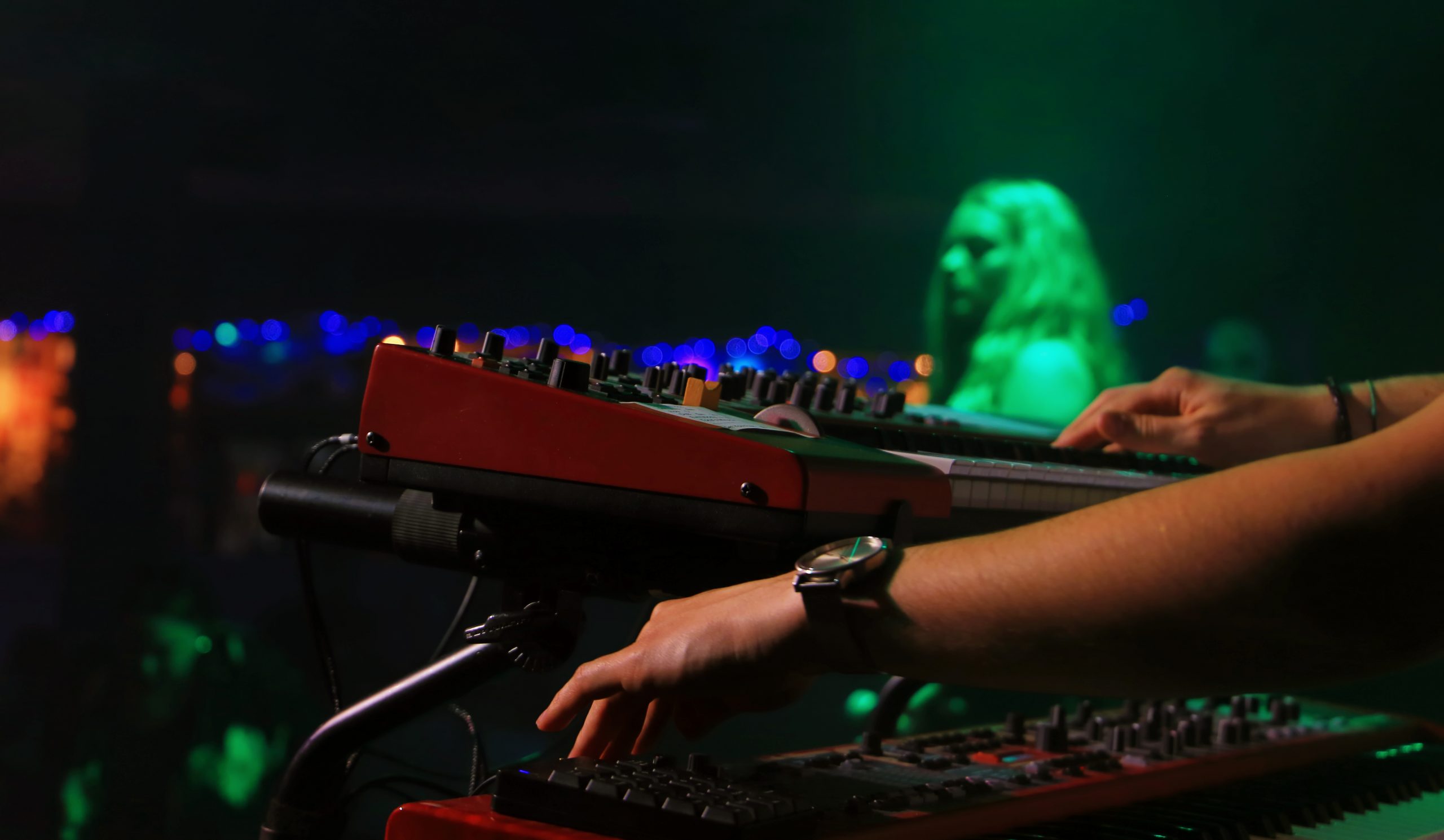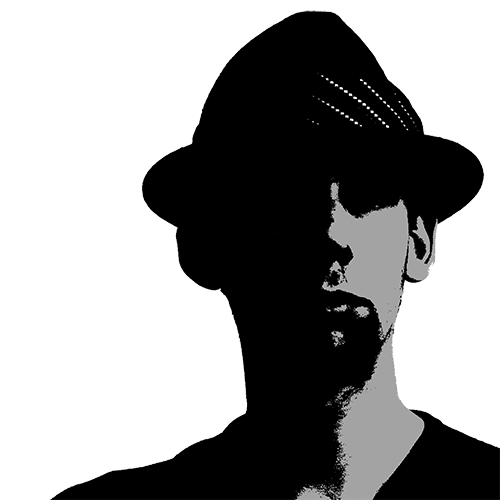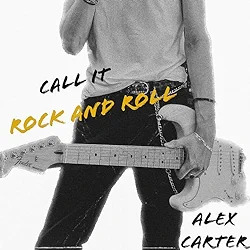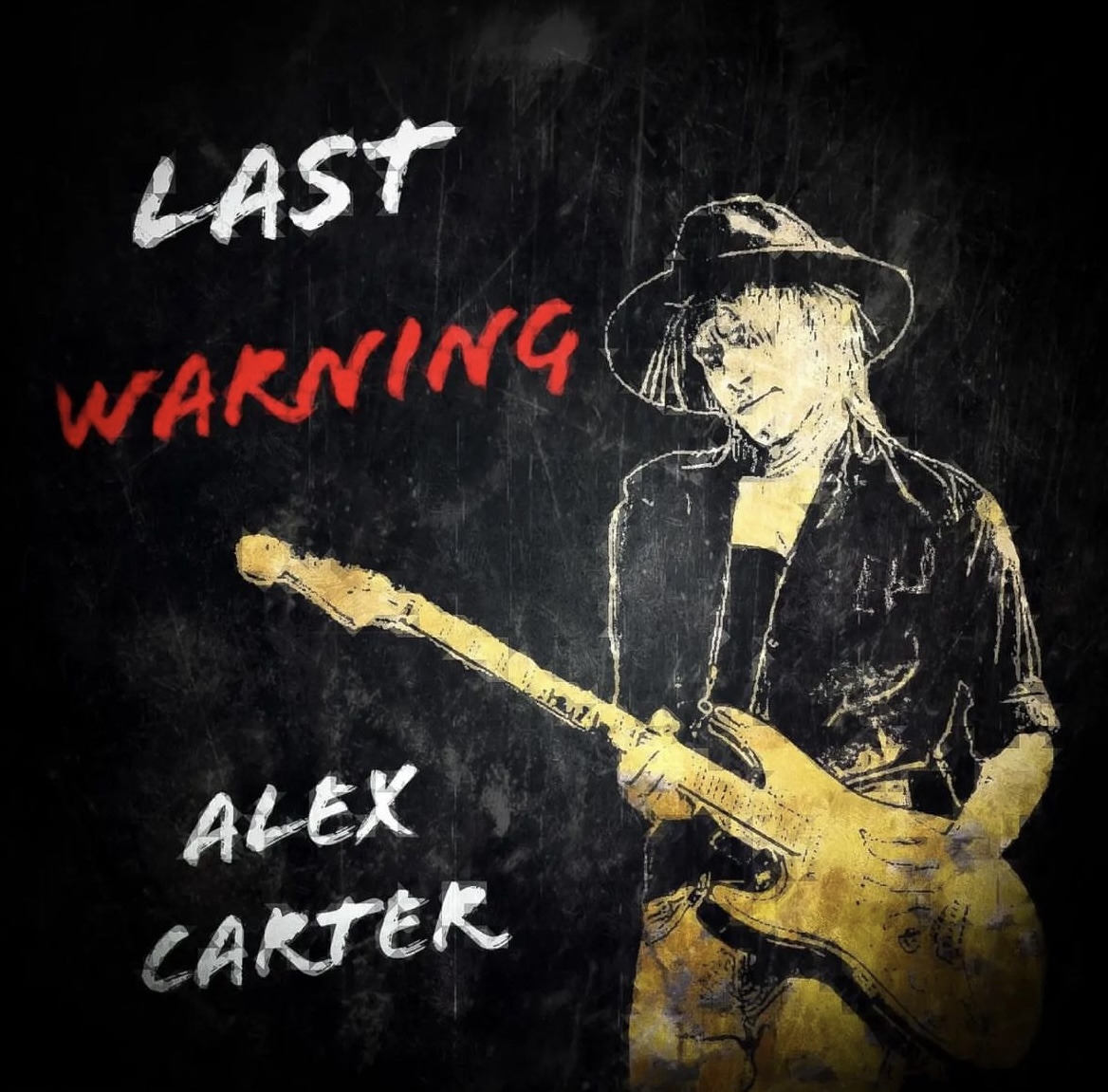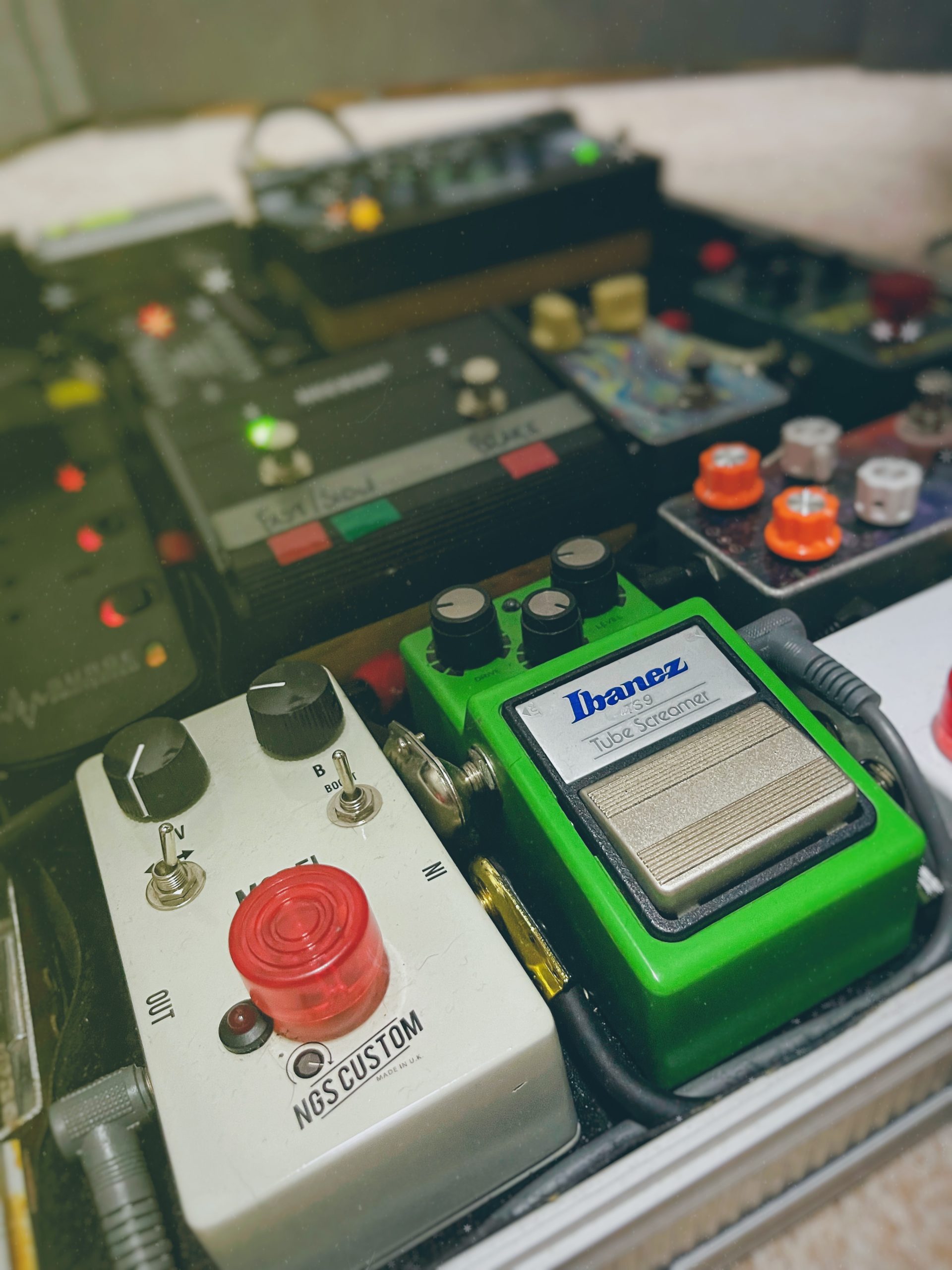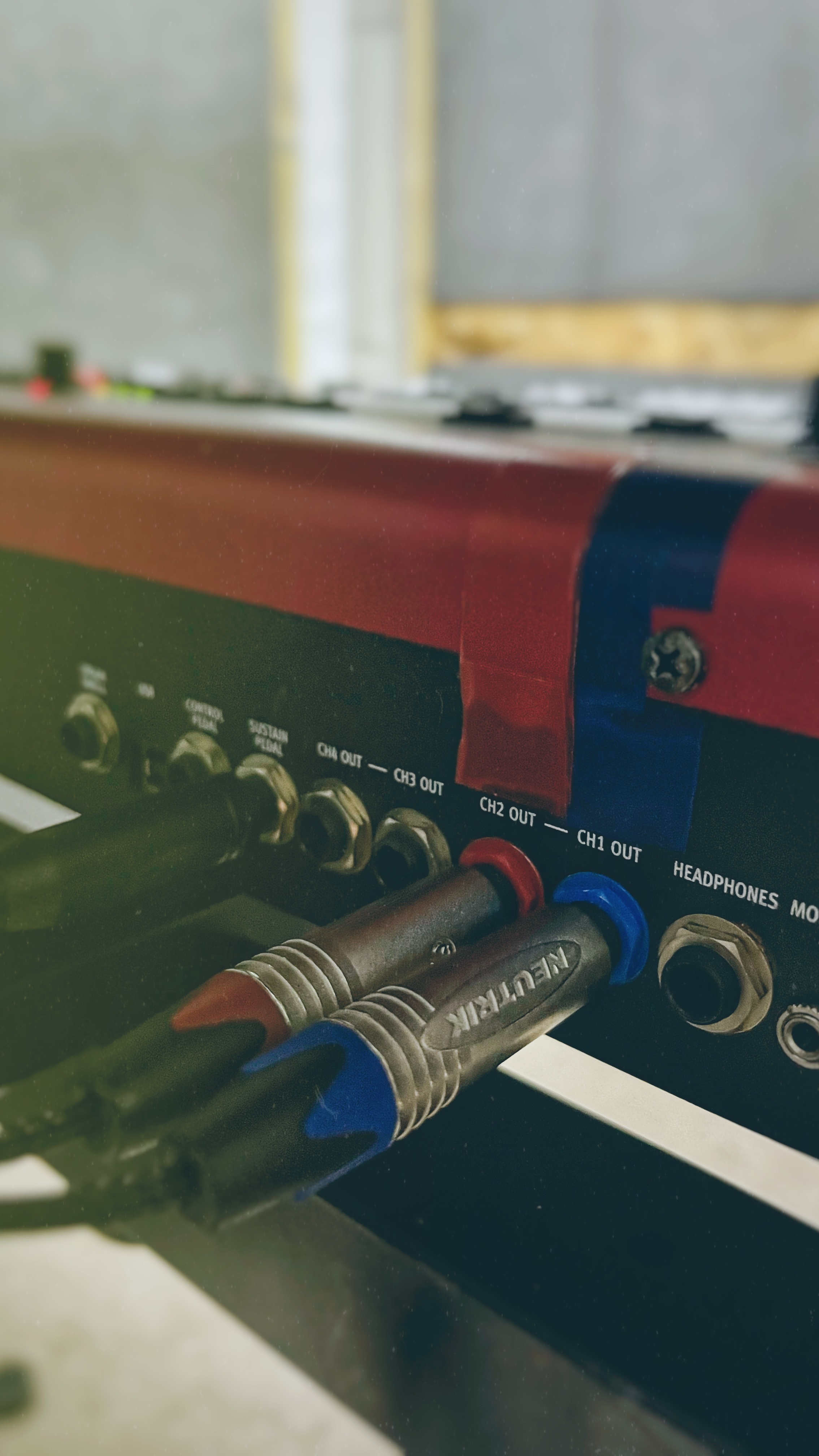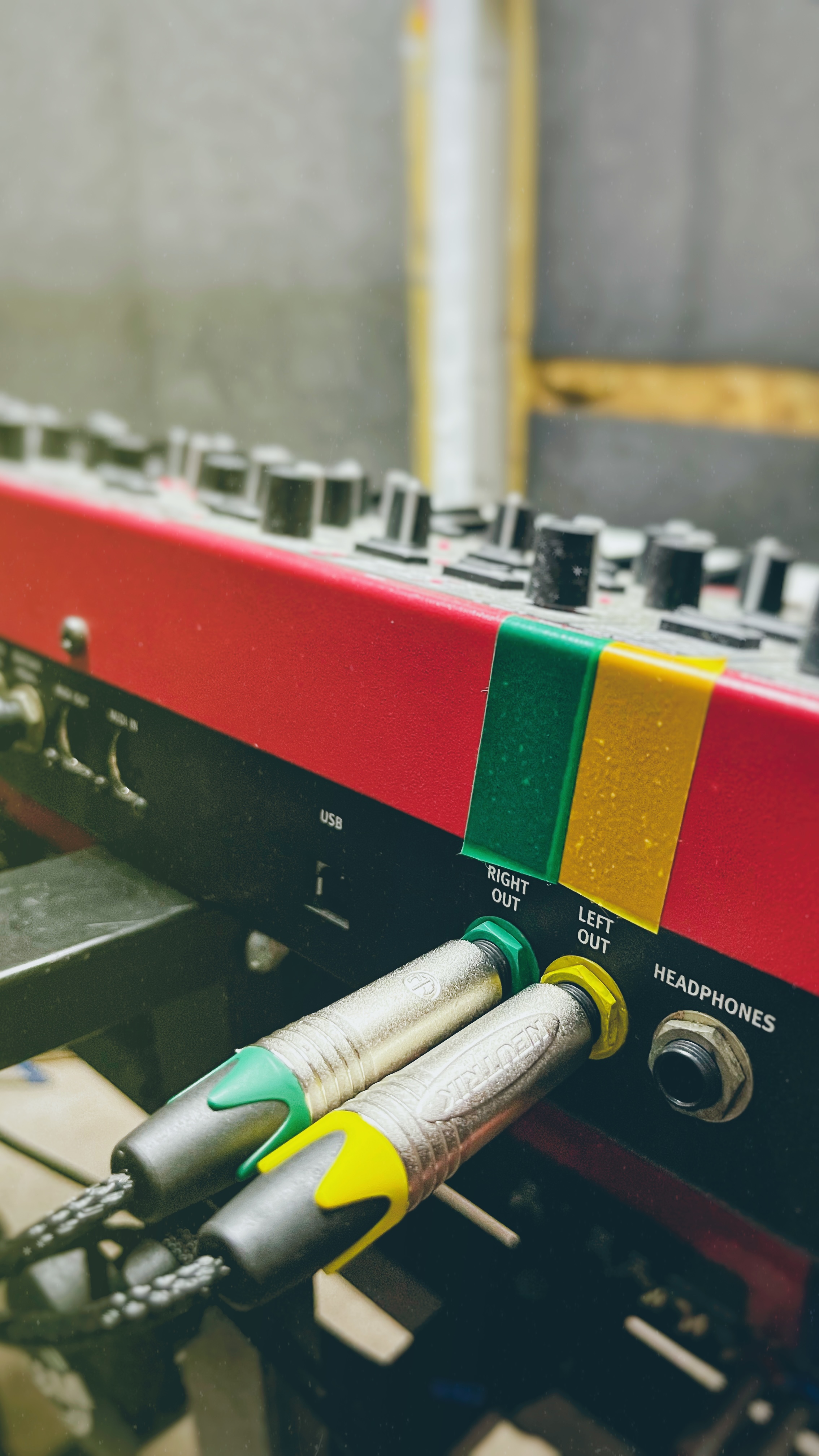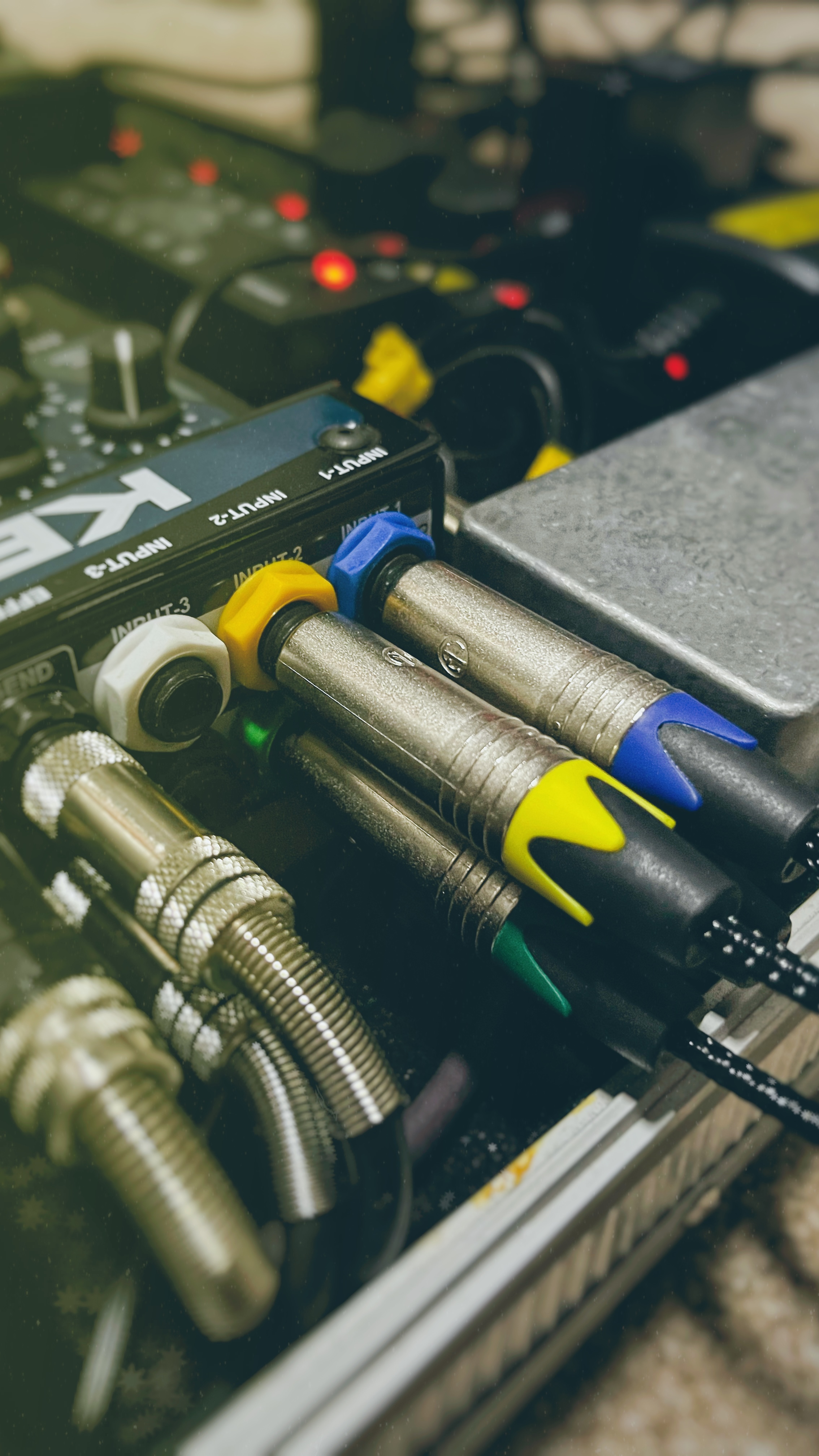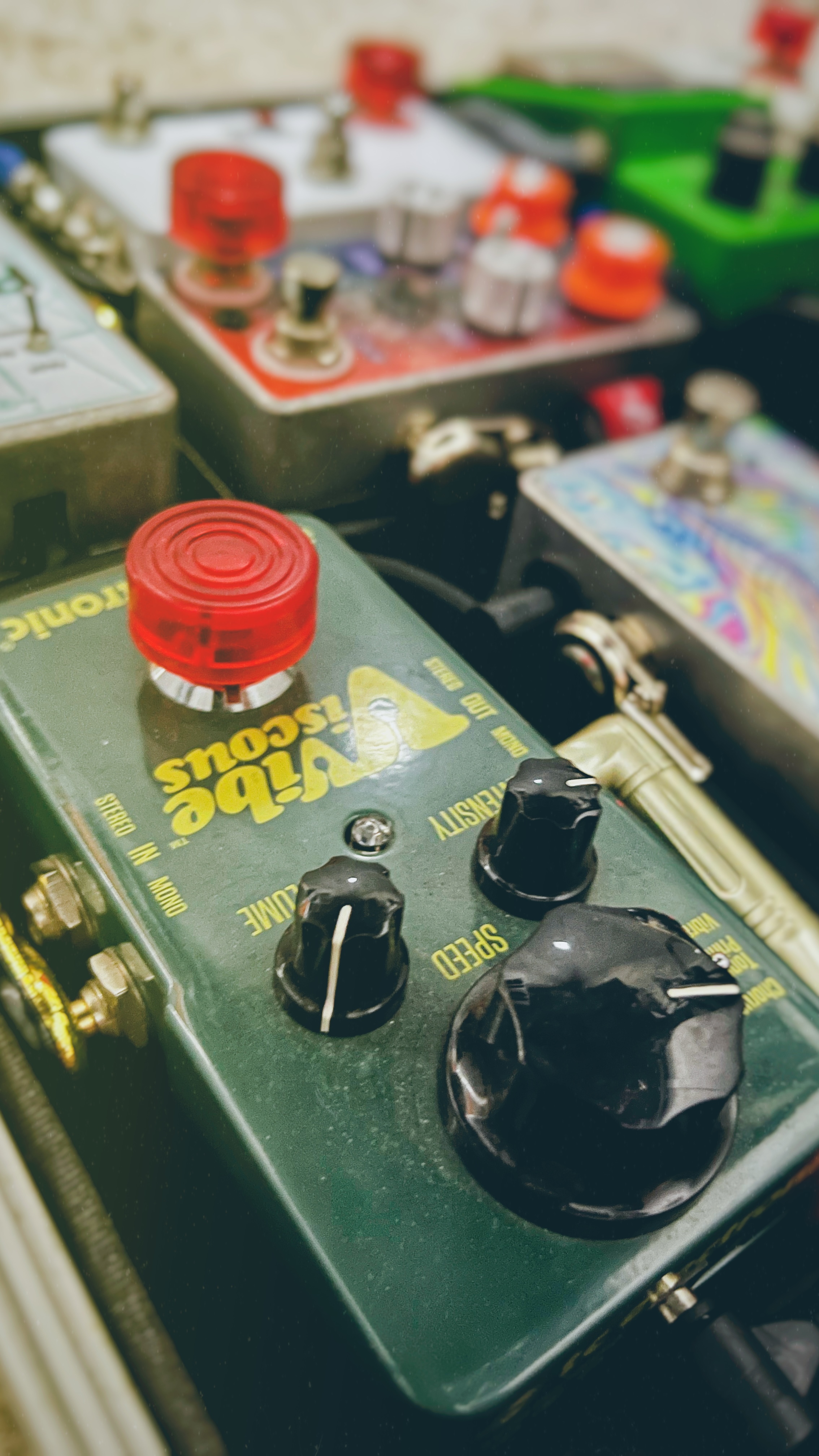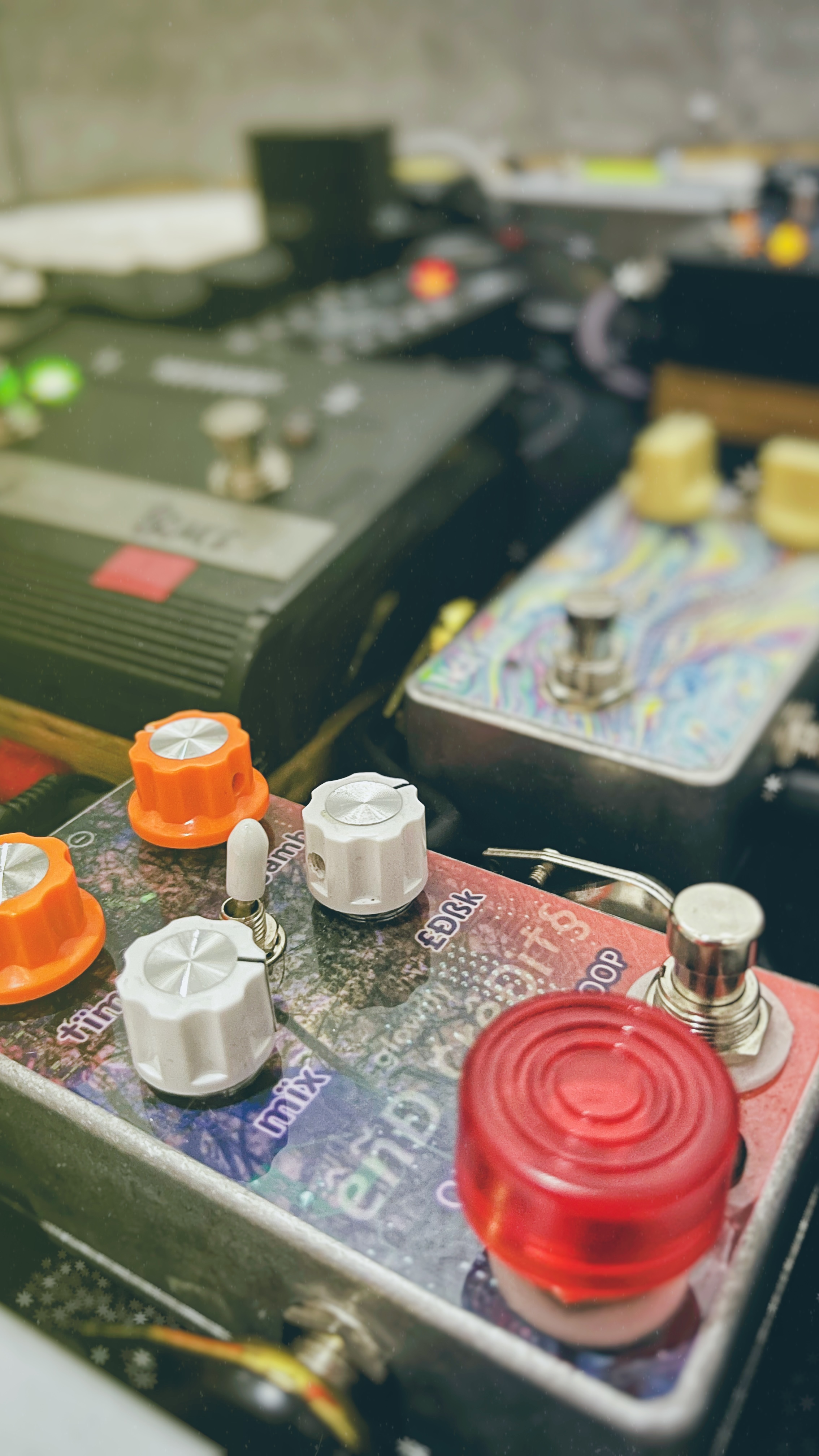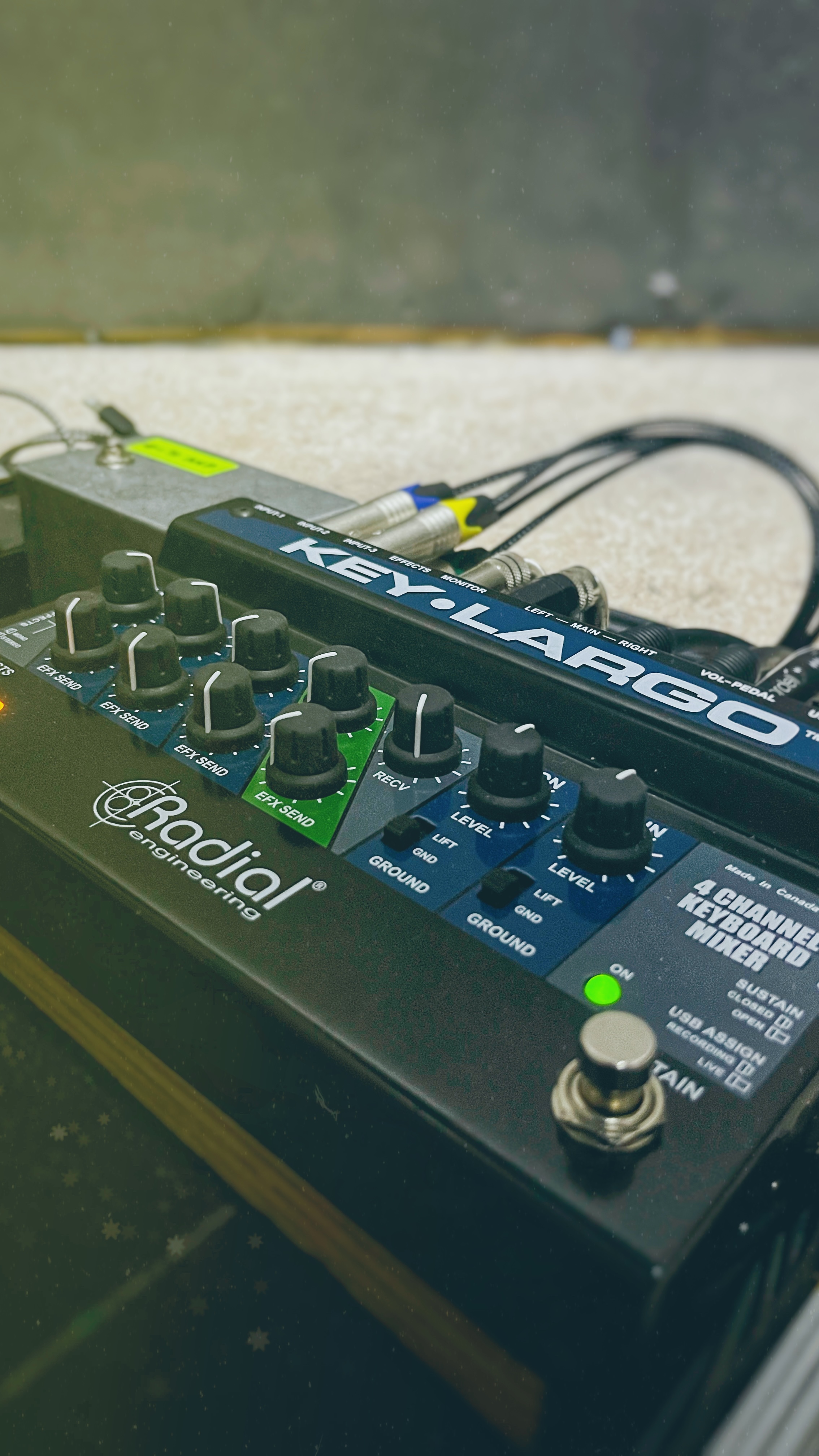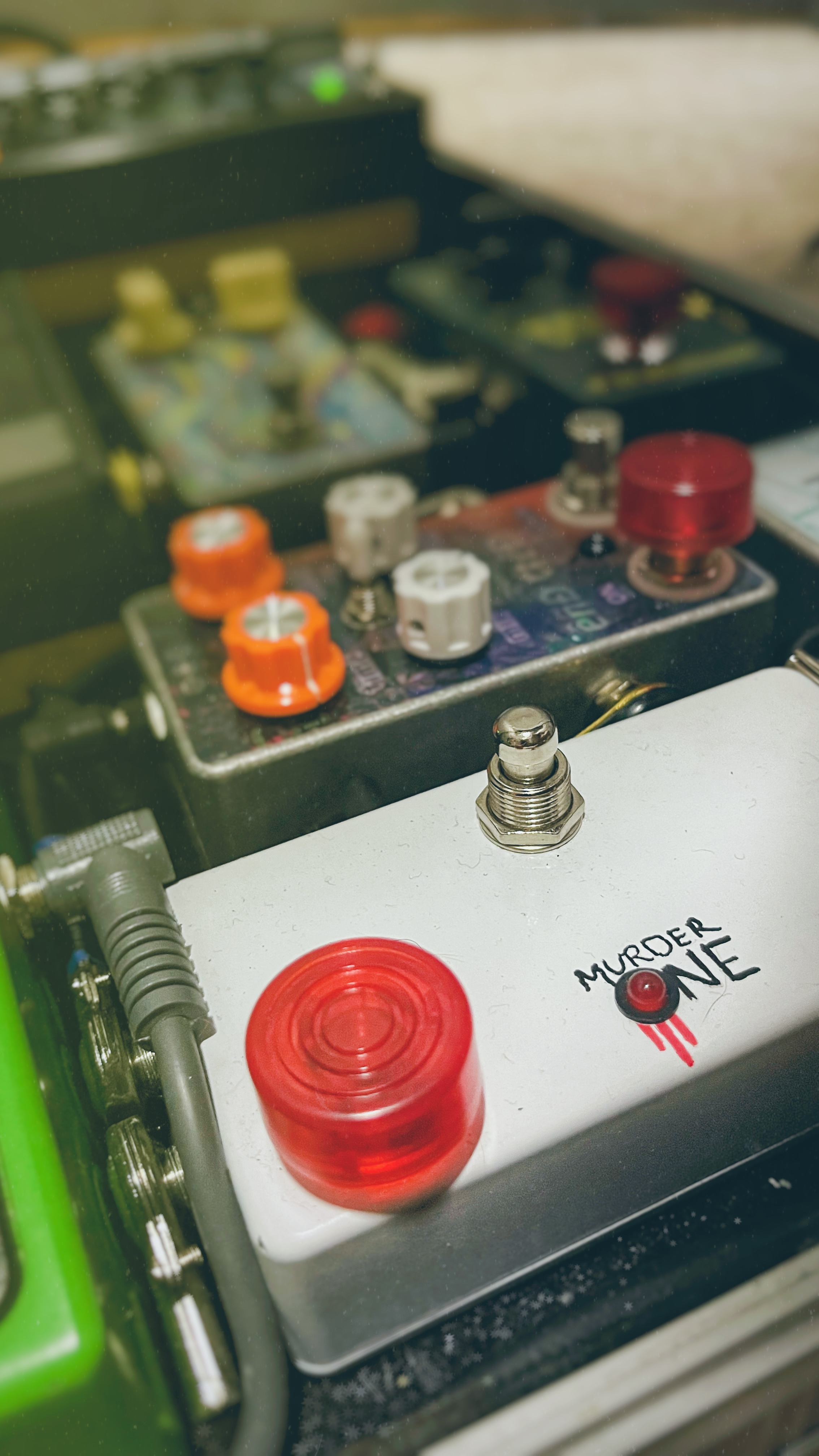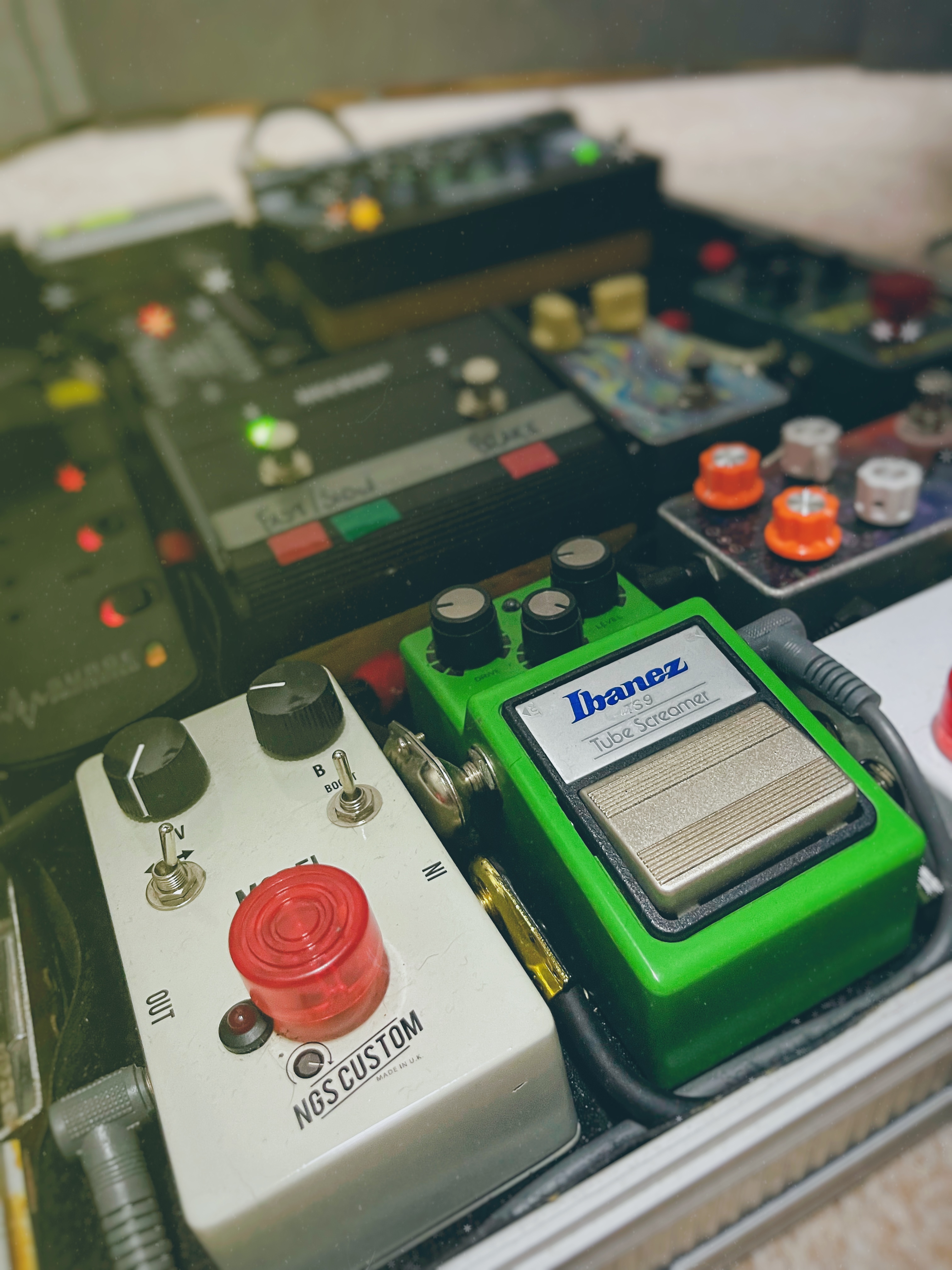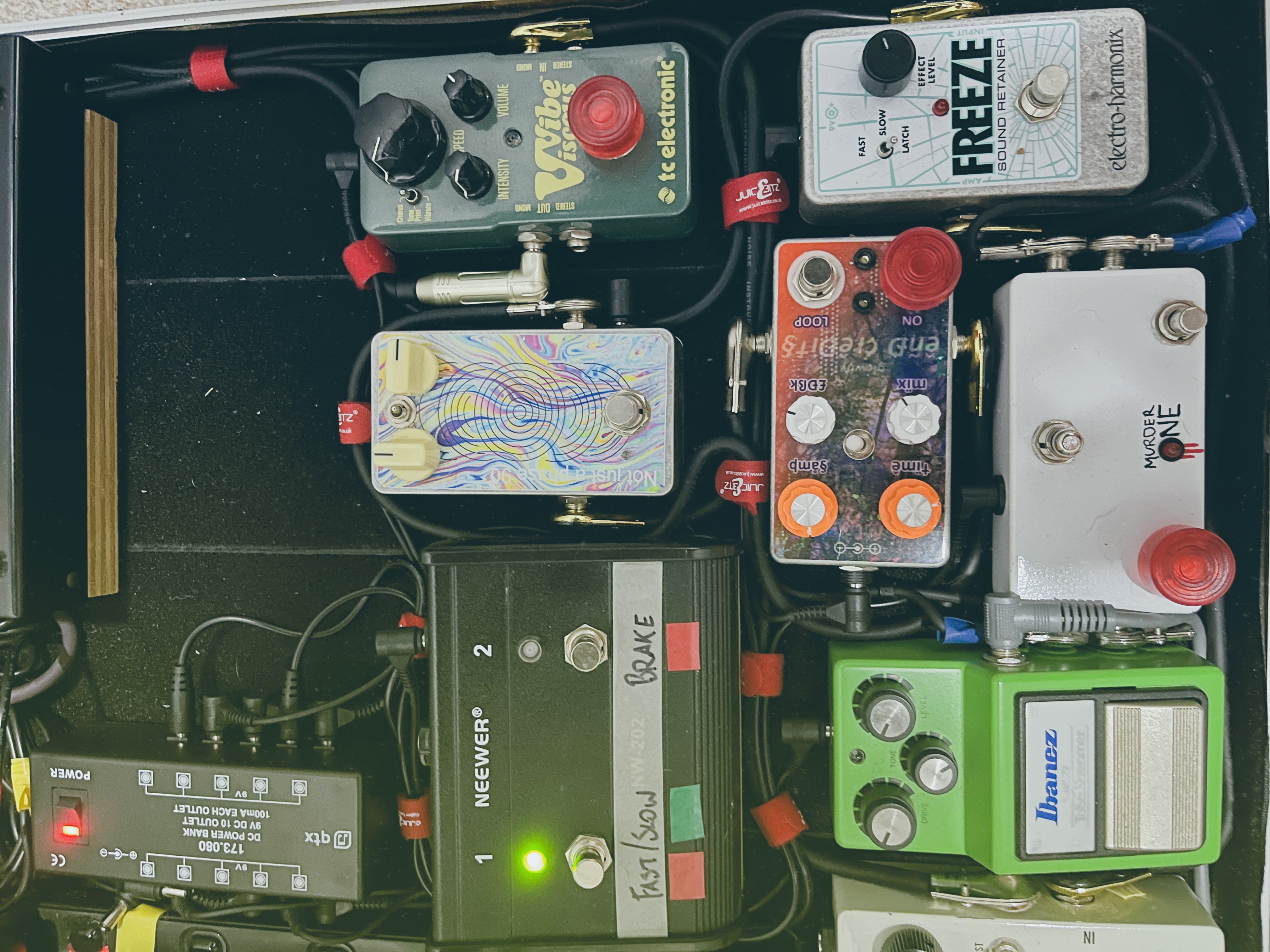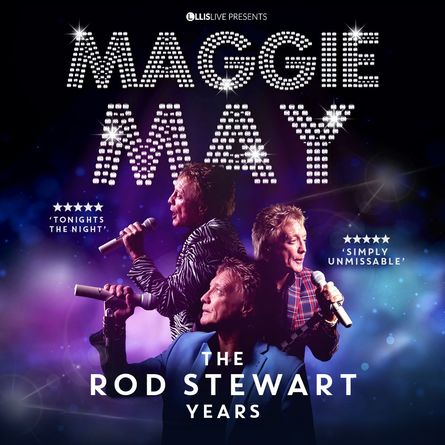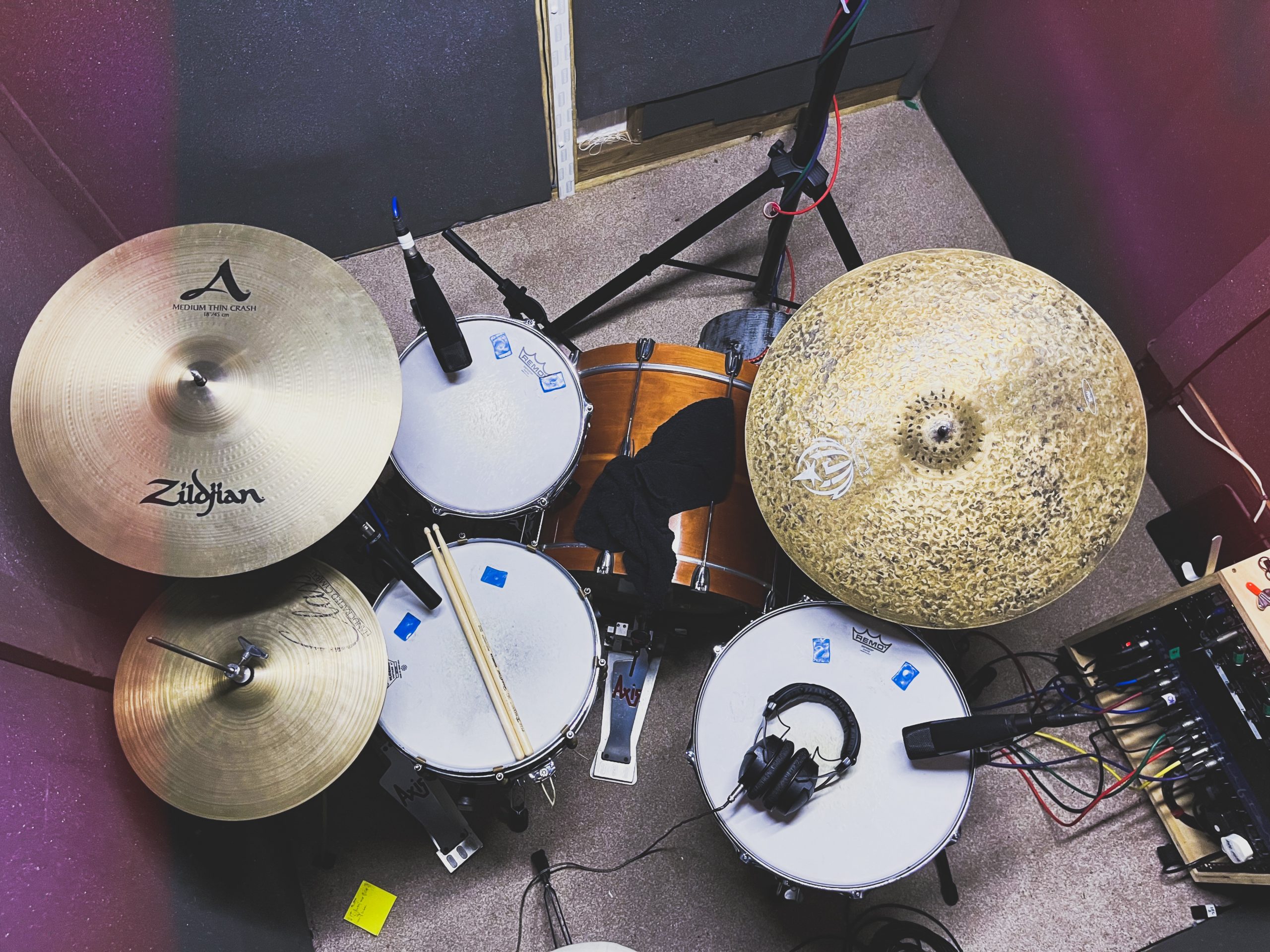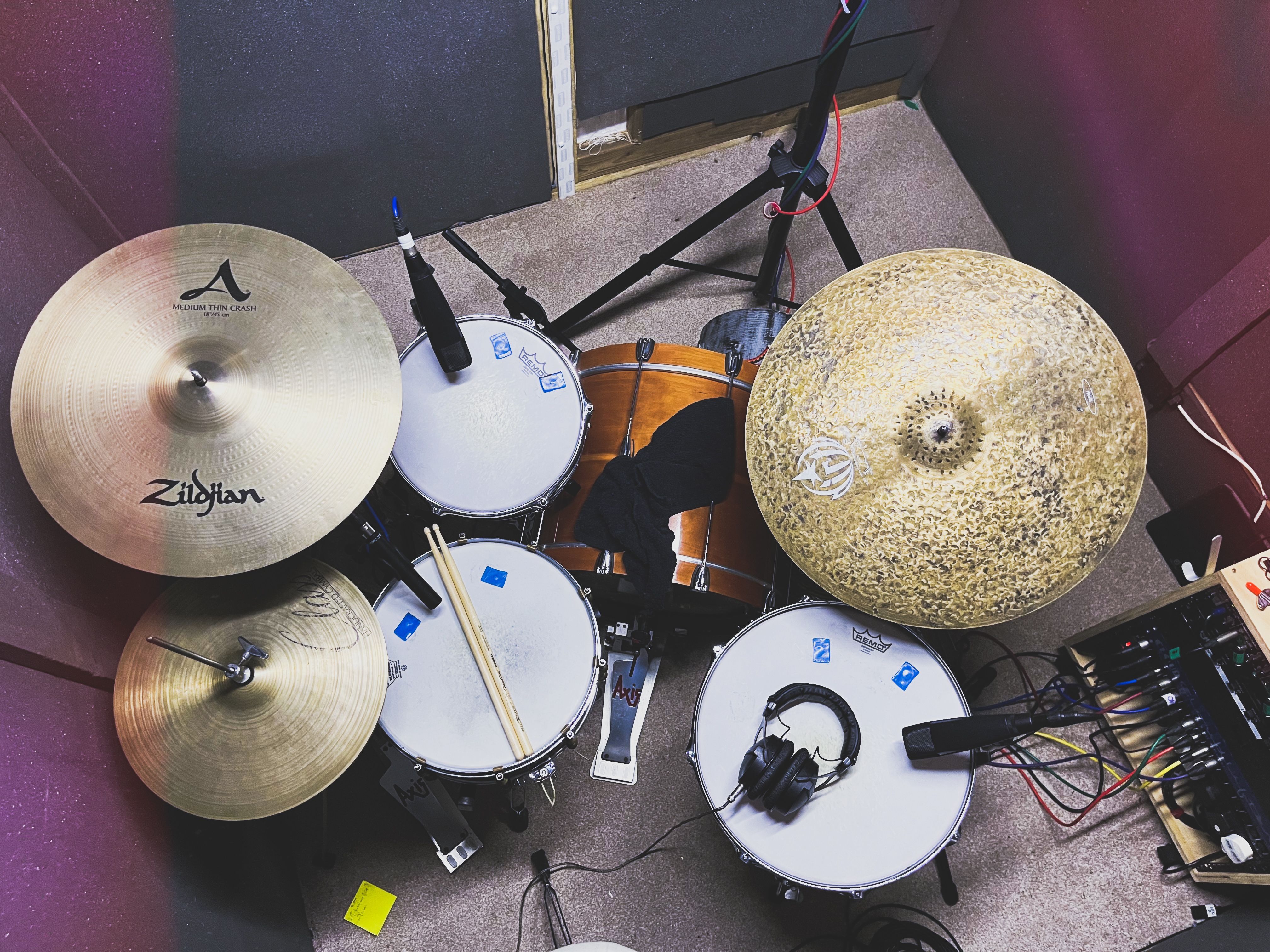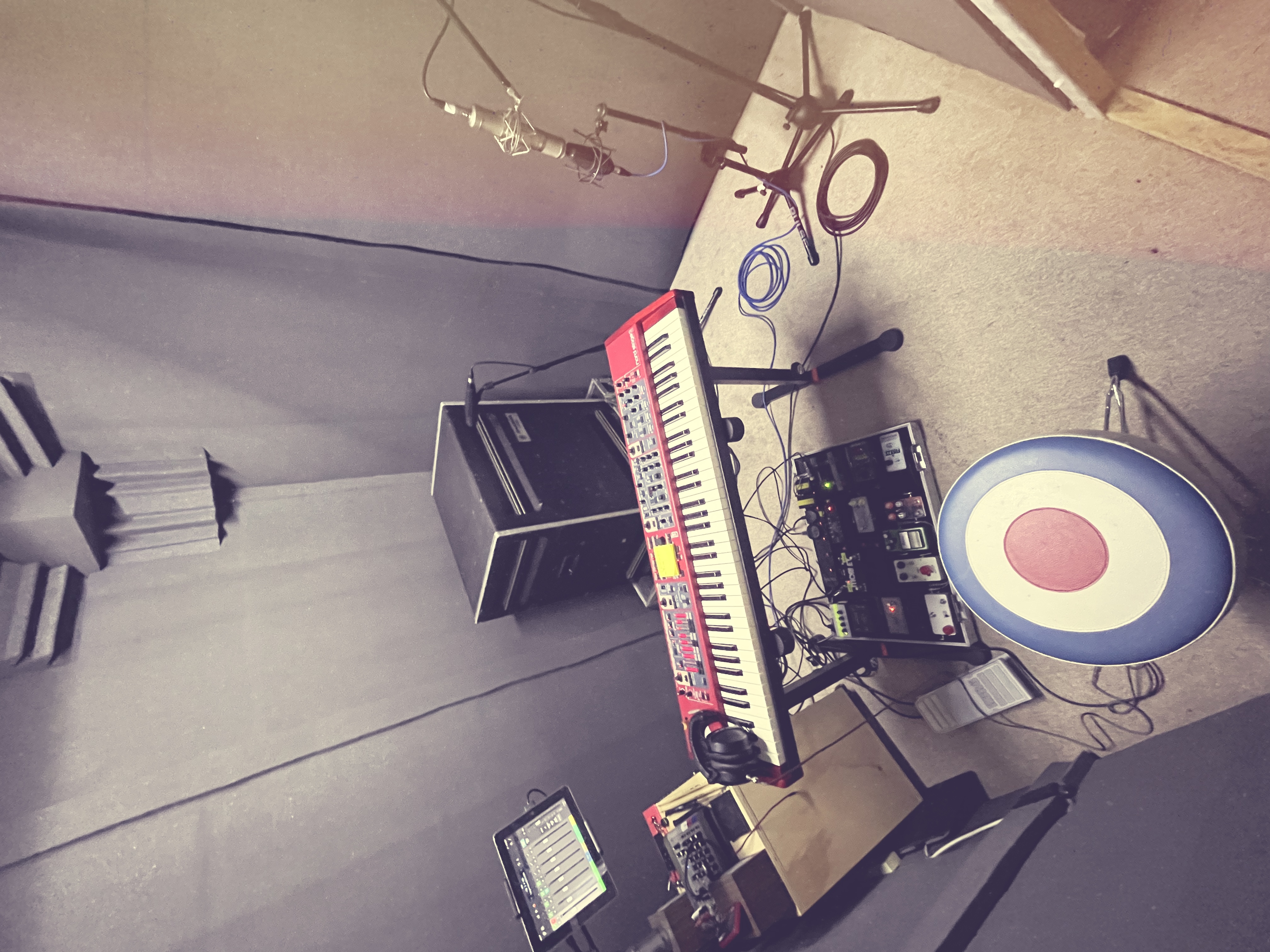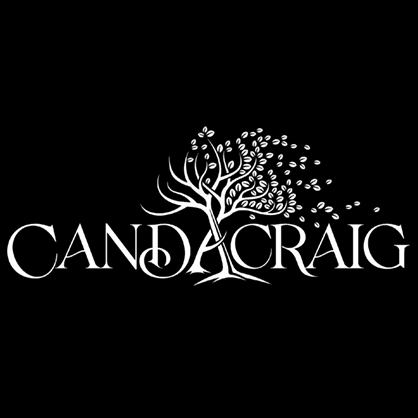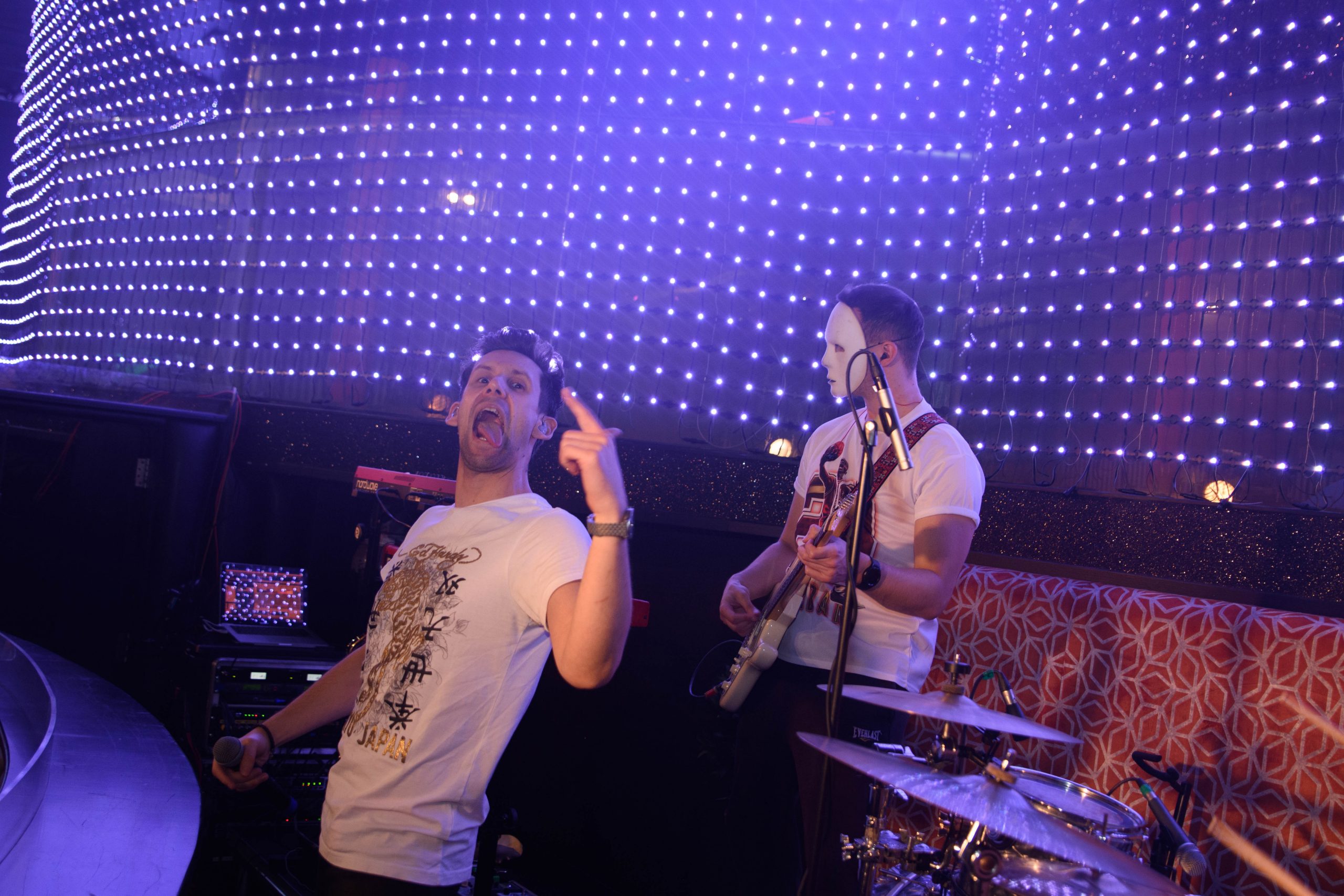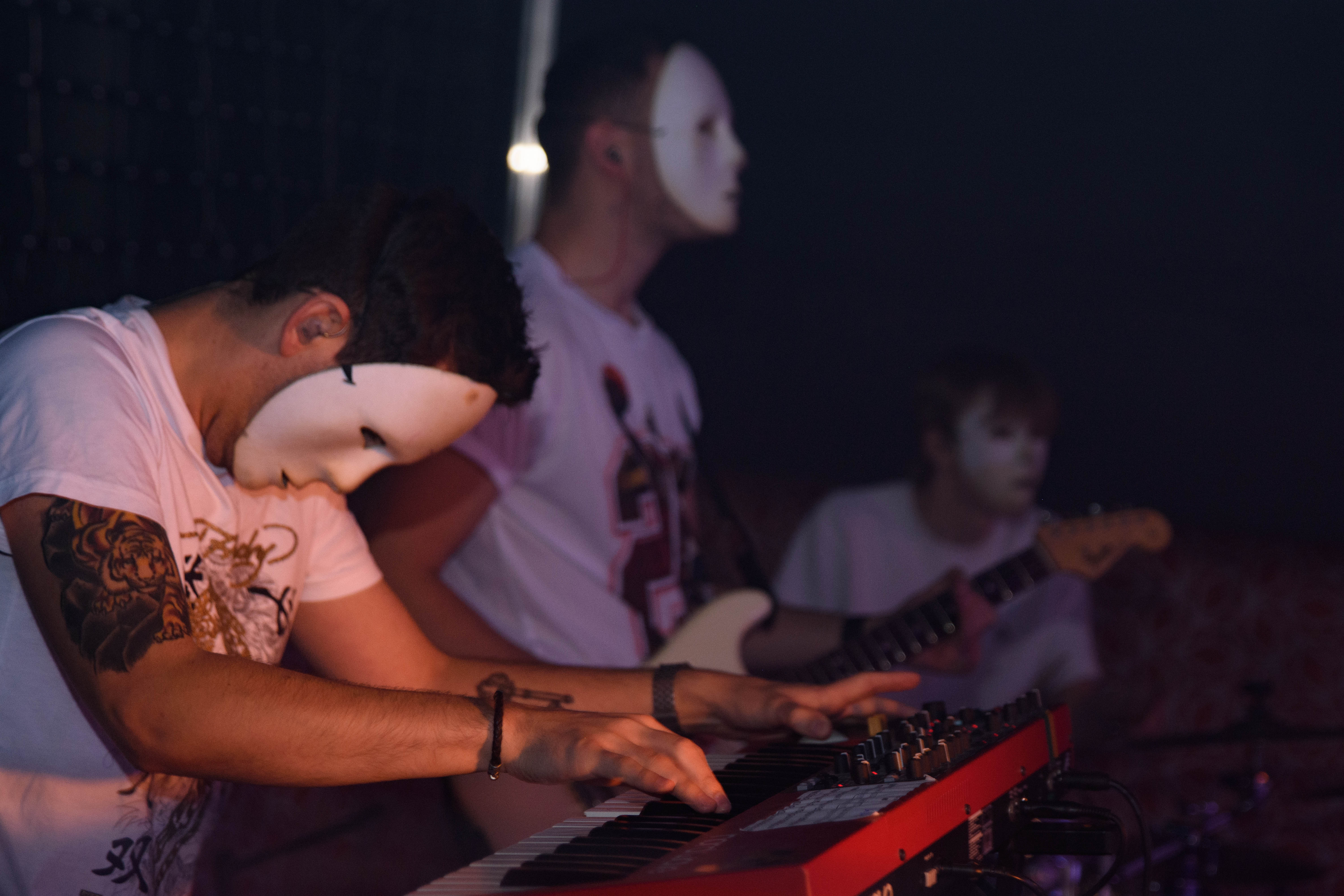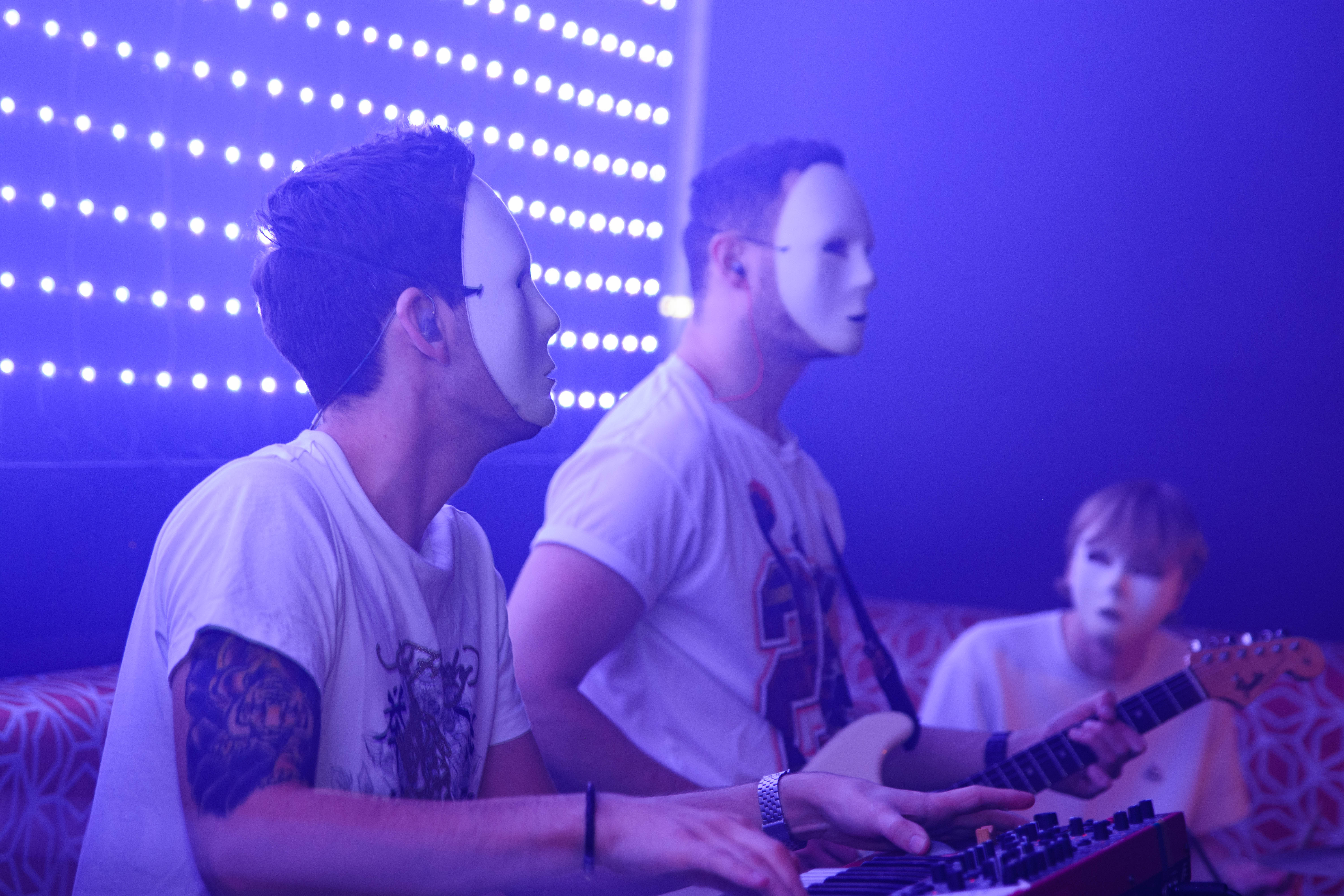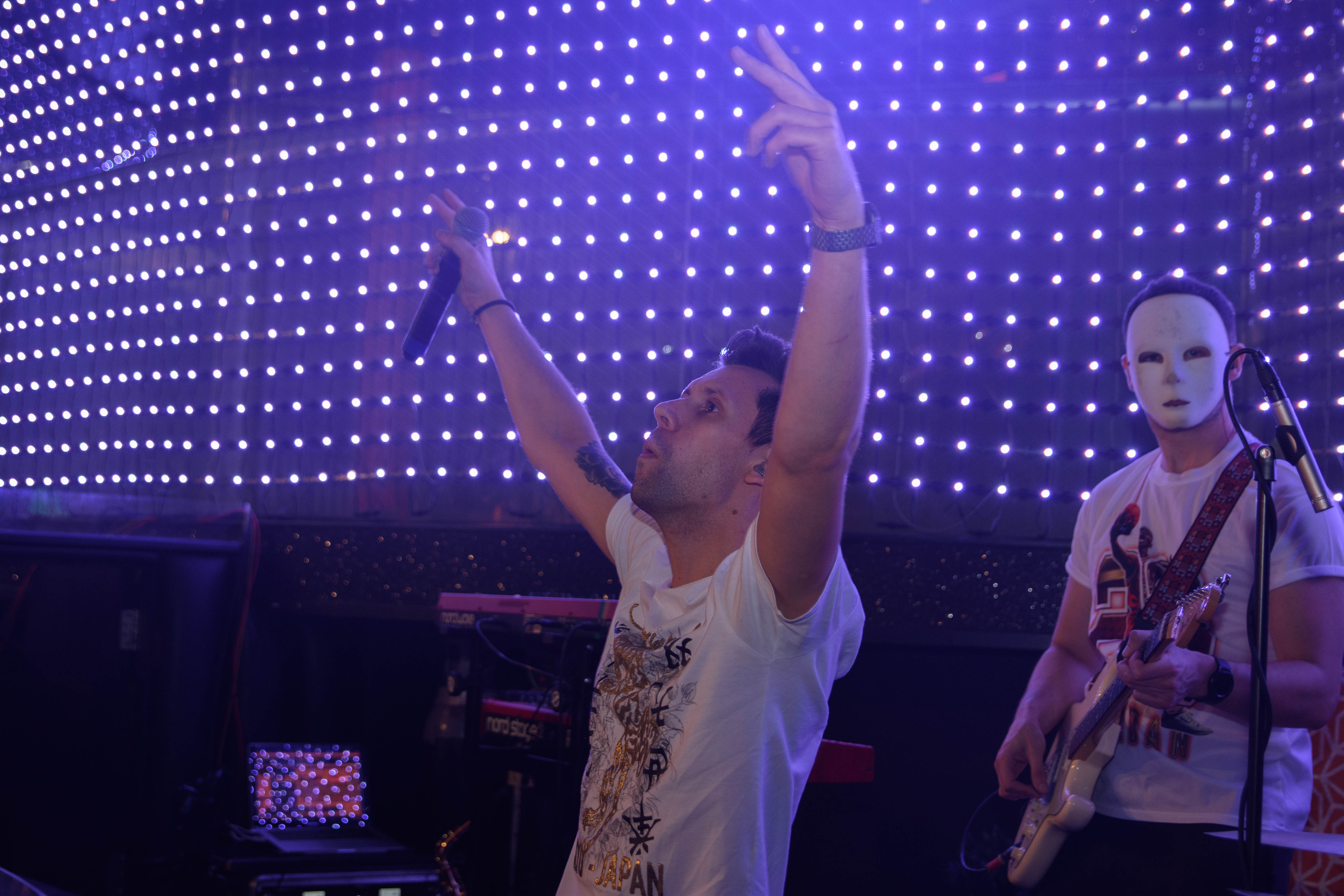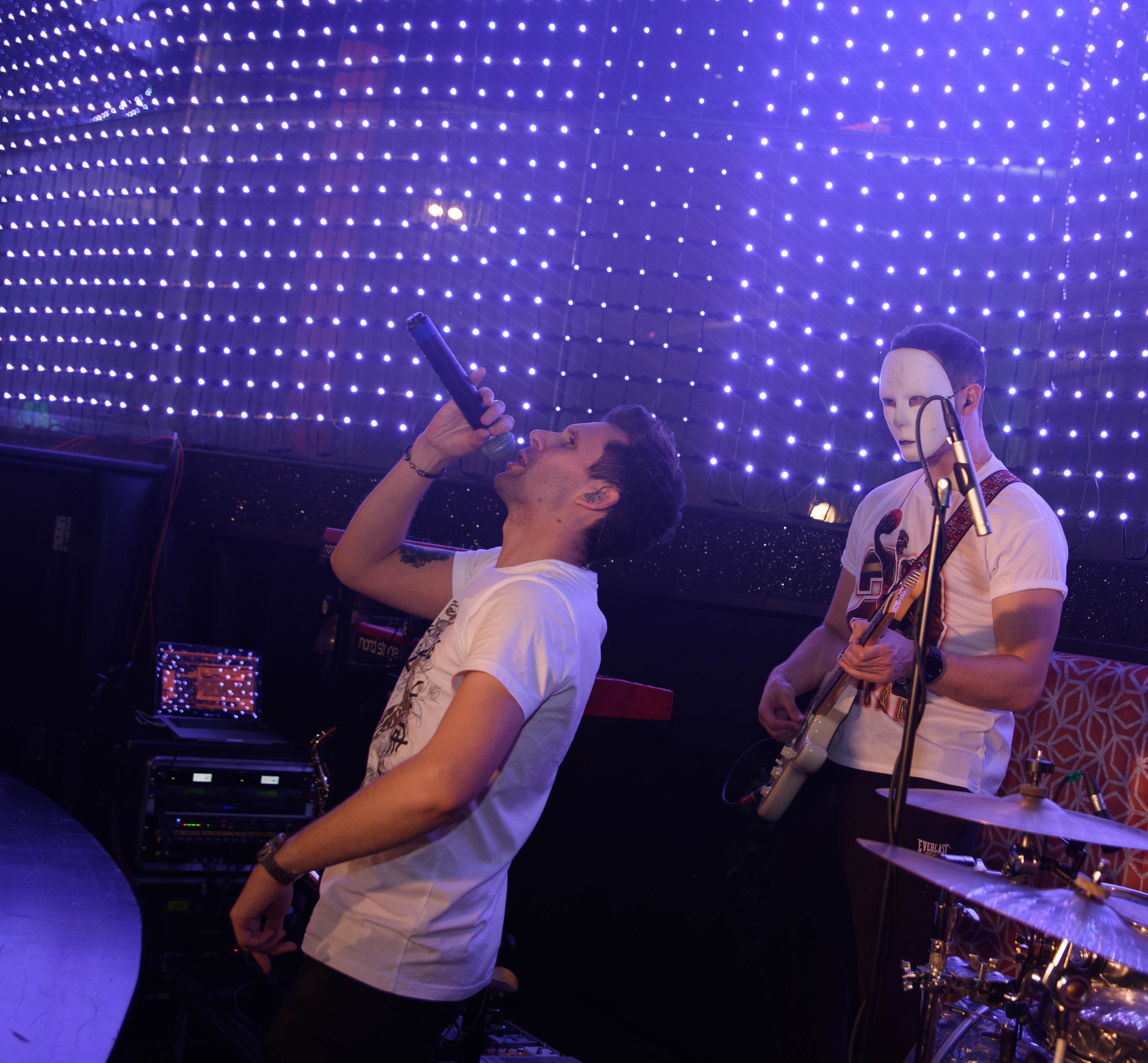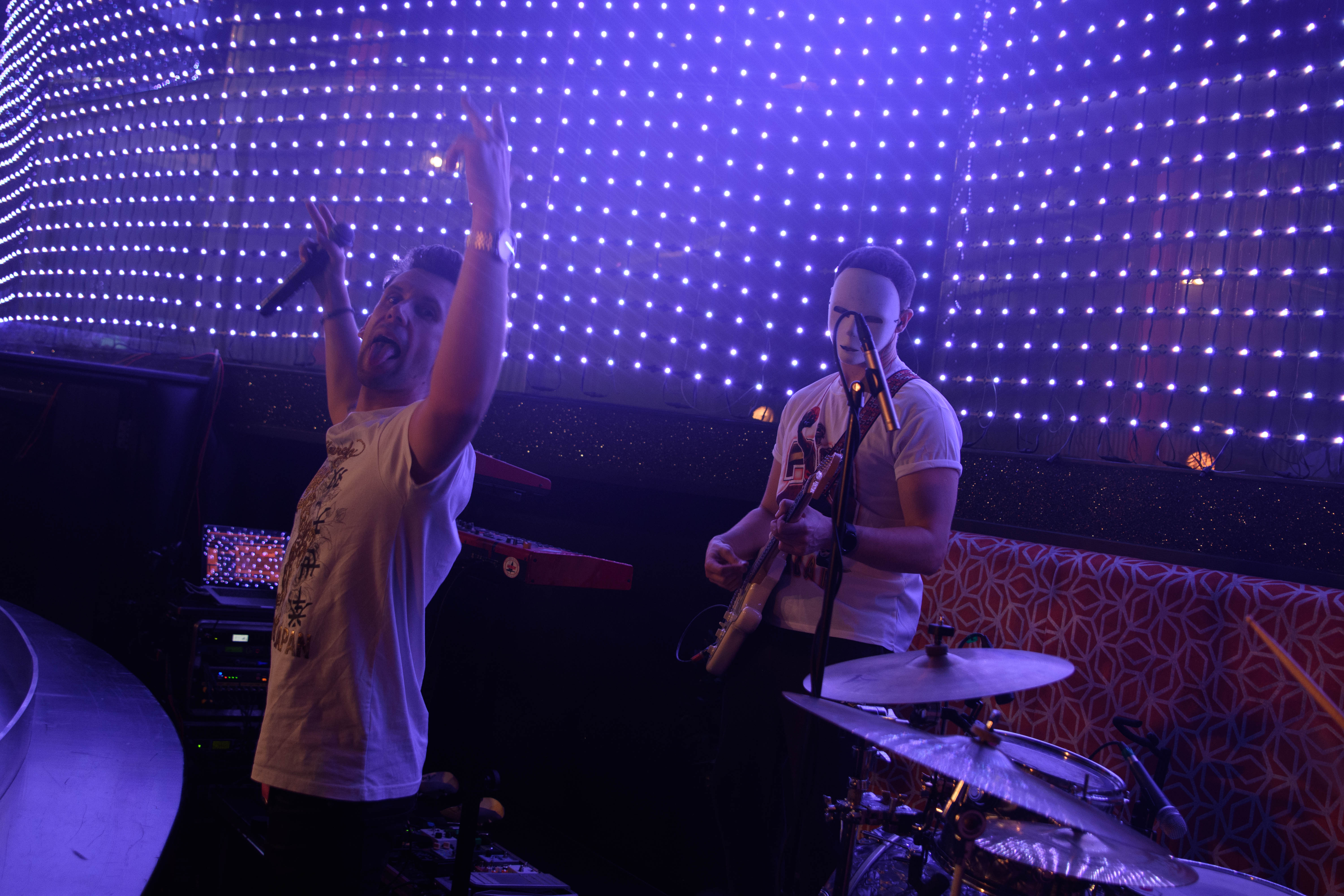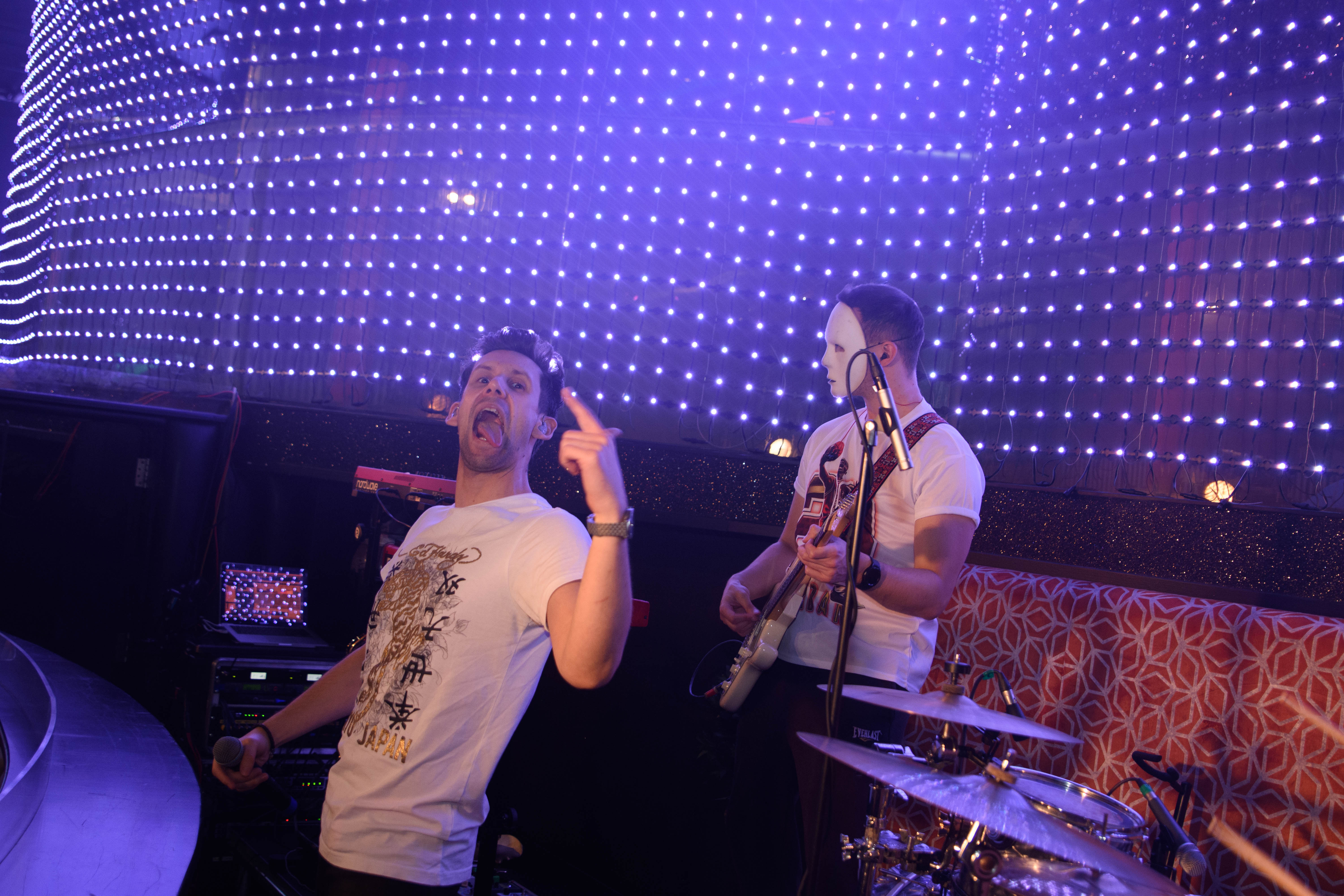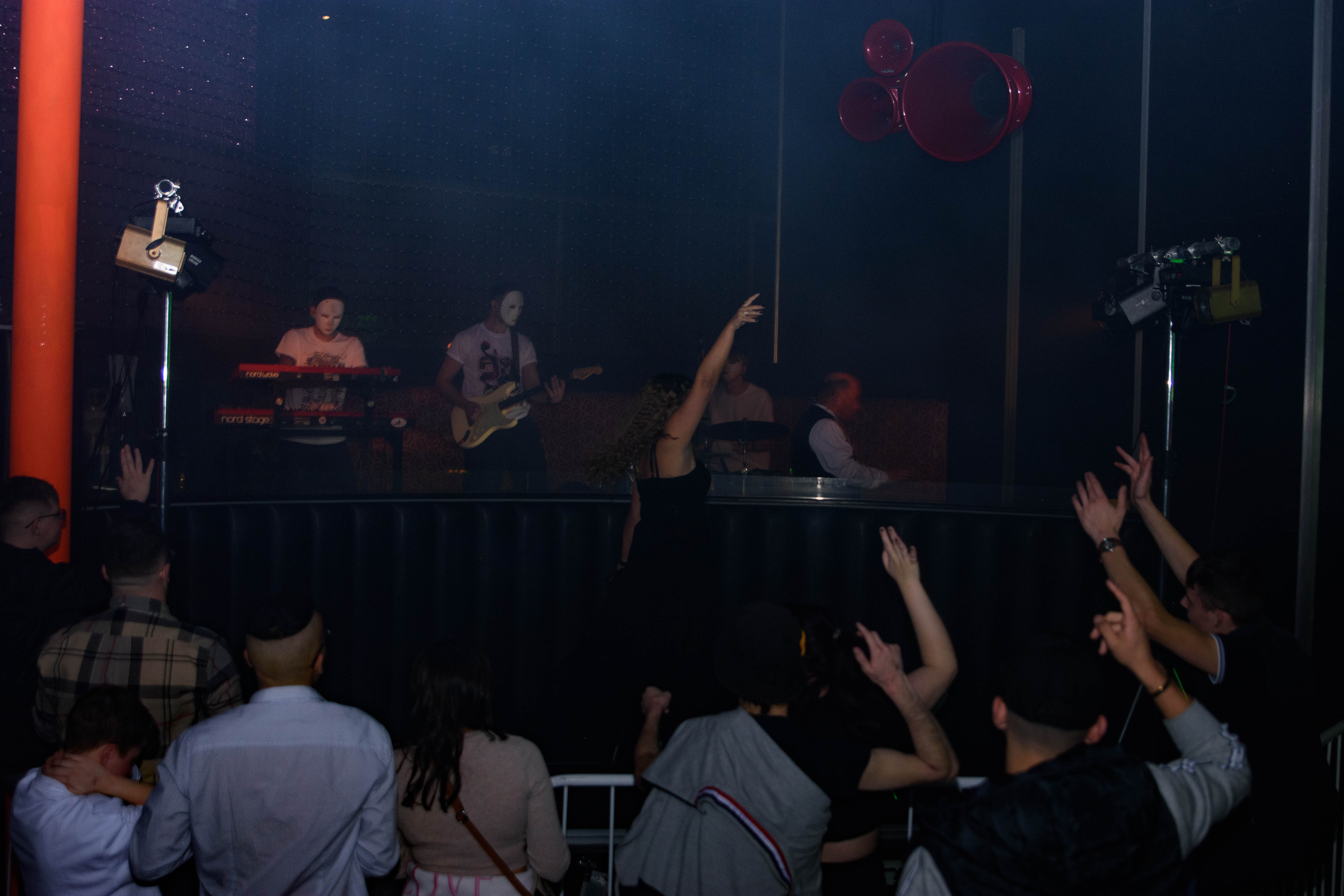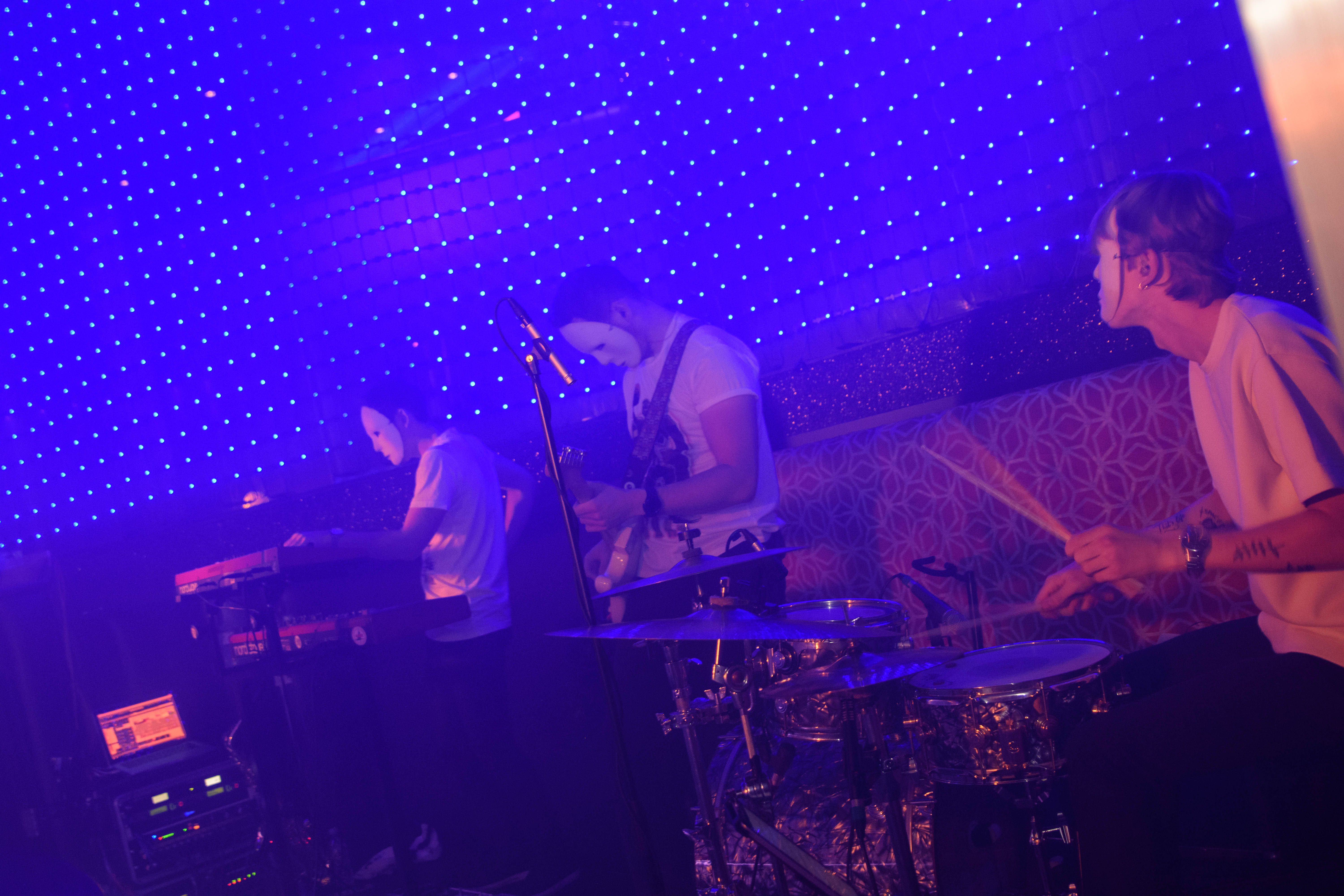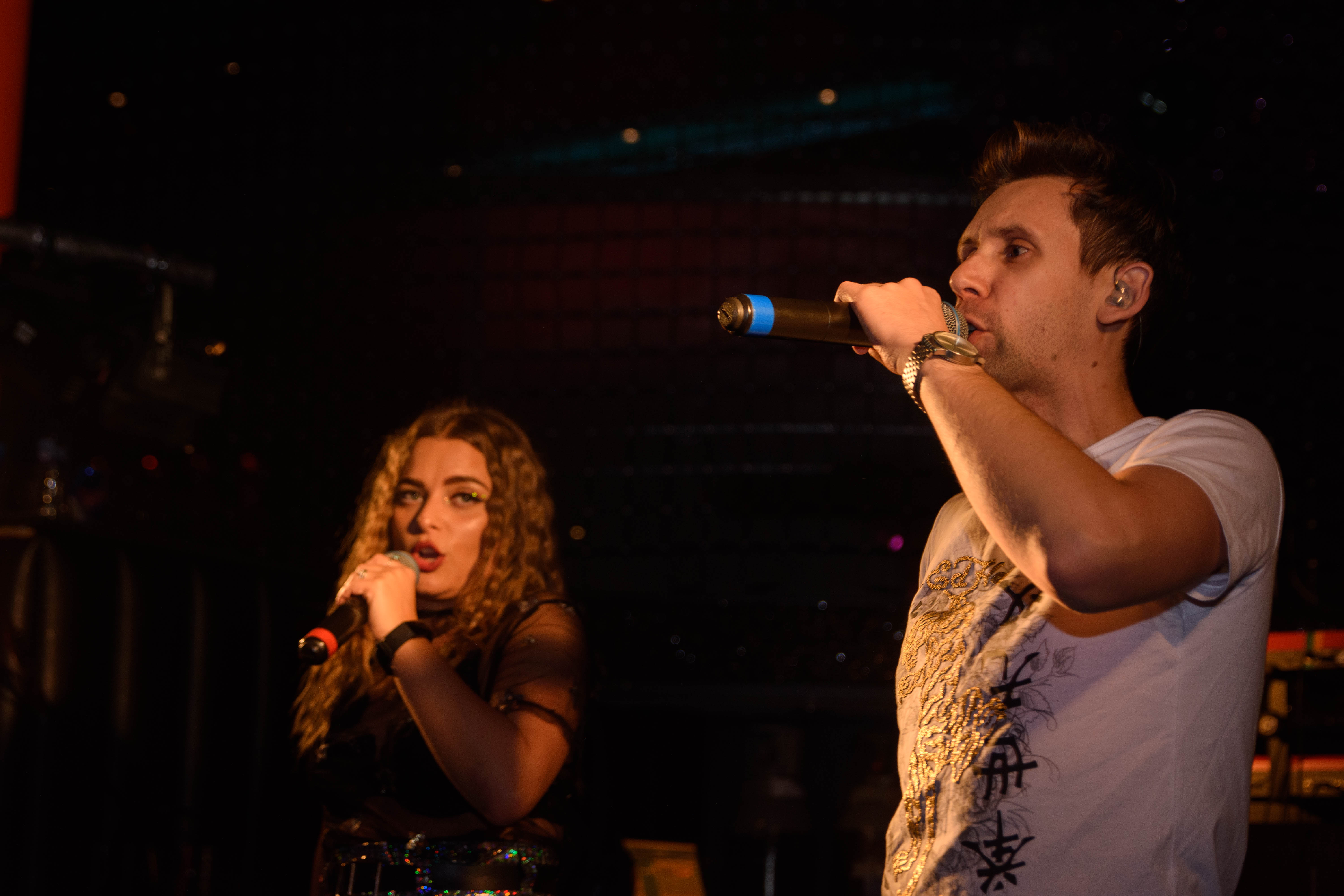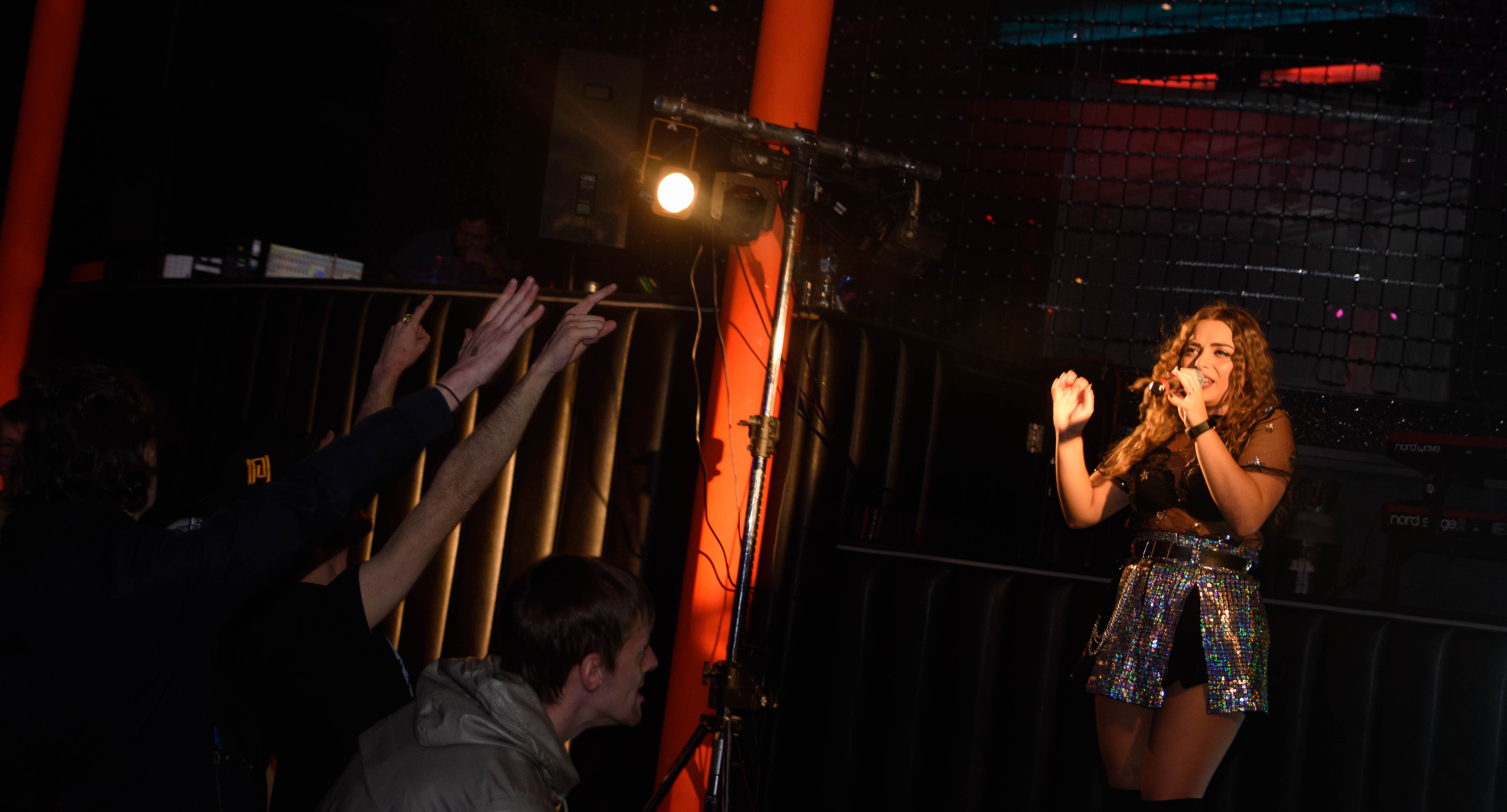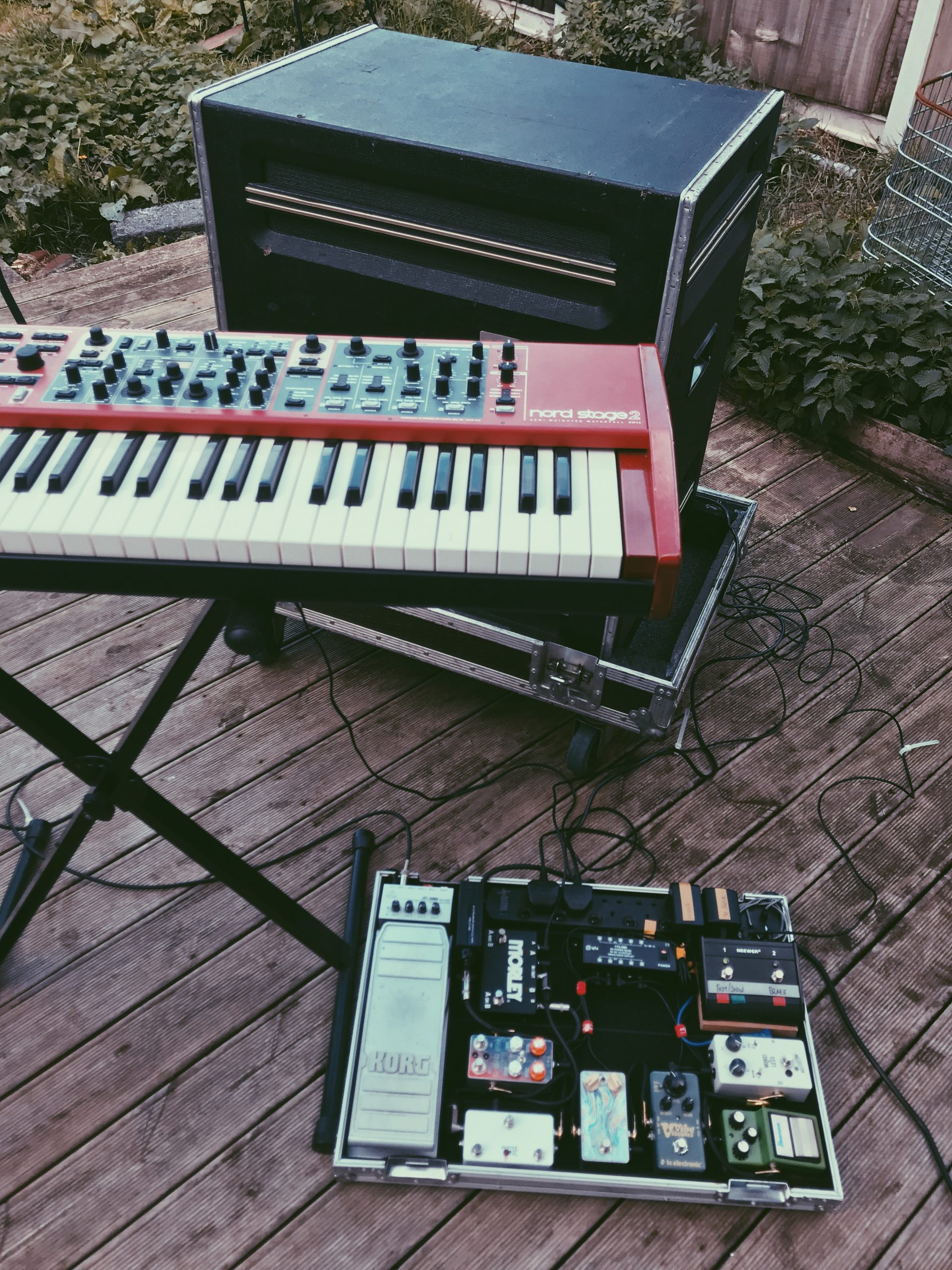-
Following the release of singles ‘Blue Boy‘ and ‘Last Warning‘, Alex Carter’s full album ‘Call It Rock And Roll’ is finally out on all platforms.
Featuring my drums recorded at my studio on five of the eight tracks, and piano on one, the album is available on Spotify, Amazon and Apple Music. Mixed and mastered by Chris Barwise.

-
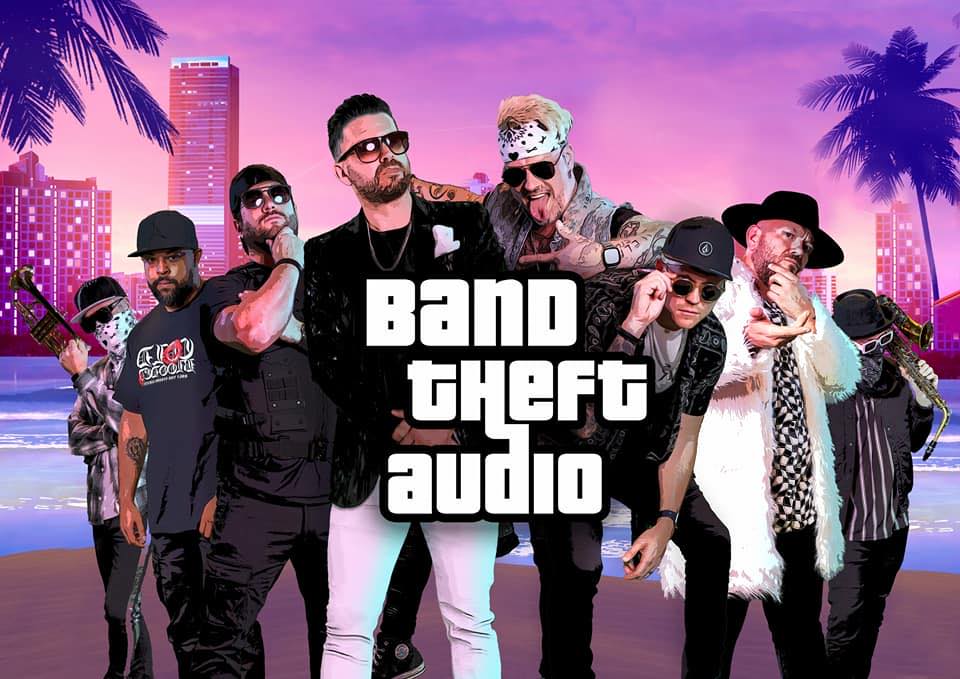
Band Theft Audio I’m delighted to be joining the UK’s hottest event band Band Theft Audio as a keyboard player this year!
Filling the gap between band and DJ, BTA provide the ultimate musical entertainment experience for your event. Musically focused on keeping heads nodding and feet moving, the BTA repertoire moves from dance, RnB, and hip-hop seamlessly to rock, funk, and pop to cater for all audiences.
It’s the perfect opportunity to flex my synth and programming muscles whilst getting stuck into an immersive live performance guaranteed to leave audiences wanting more.
I’ll be playing with BTA on a number of festivals and other events throughout the year, so keep an eye on the Calendar page and don’t miss the chance to come and check us out.

-
The second Alex Carter single I have recorded on drums at my studio. Mixed and mastered by Chris Barwise.
Look out for more new music from Alex Carter coming soon!

-
This is something I get asked about from time-to-time… I know you don’t commonly see keyboard players using boards of effects pedals, like guitarists often do, but I have put a lot of thought into the setup I’m using on my gigs and I feel like this rig fits my workflow and my approach to my playing well.
I enjoy using tactile pedals to add or remove layers of sound ‘in the moment’, shaping the tone of my playing to fit the contours of the song; I have tried to build something which allows me to achieve a wide range of sounds on the fly, whilst keeping load-in and setup easy and convenient.
Check out the video for a full ‘rig rundown’ of the setup I’m using on my gigs at the moment.
Click here for a full break-down on my custom rotary speaker speed-switcher pedal, as mentioned in the video.

-
The UK’s most prestigious Rod Stewart Tribute starring Rob Wright as Sir Rod Stewart, backed by his sensational live band.
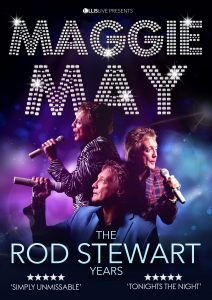
Maggie May, The Rod Stewart Years Covering a catalogue of Sir Rod’s chart-topping hits spanning a jaw-dropping 5 decades, including titles such as Handbags & Gladrags; Maggie May; You Wear It Well; I Don’t Want to Talk About It; This Old Heart of Mine; Sailing…
This is a show like no other, dedicated to not only the music of Sir Rod but celebrating the life and story behind the man. A fantastic tribute to a living legend, Maggie May, The Rod Stewart Years is guaranteed to have you singing along and dancing in the aisles.
I’m very proud that I will be playing keys on this exciting new production dedicated to the songs of Sir Rod Stewart, opening at Bath Forum on 6th September.
Check the Calendar page for the full tour dates.

-
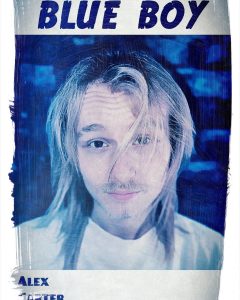
I had a great time recording for blues artist Alex Carter last month, and Alex’s new single ‘Blue Boy’ is out now on all digital platforms – including Spotify, Amazon and Apple Music.
All the drums and organ parts for ‘Blue Boy’ were recorded ‘remotely’ here at my studio, before the track was mixed by record producer Chris Barwise.
I’m really happy with the overall sound and vibe I achieved in the studio – capturing Alex’s ‘raw, classic blues sound’ inspired by artists like The Stones, Chuck Berry and John Lee Hooker – and I am proud to have contributed to this record.

-
I’ve had the privilege of recording both drums and organs on a new single from blues singer/songwriter Alex Carter in my studio this weekend.
With a super cool, groovy blues vibe, I have really enjoyed getting stuck into this session and getting the tone and feel of the song just right – both in my playing and in the choice of cymbals and studio techniques. Plus the session was also another great opportunity to run organs through my vintage Sharma 2000 rotary cab, which is always very exciting!
Keep an eye out for the finished single being released soon. I can’t wait for everyone to hear it!

-
I’m very excited that I’ll be playing keys with Lincolnshire’s alt-folk duo Candacraig at The Portland Arms in Cambridge next weekend, on Sunday 26th February, showcasing songs from their debut album Thunder of Whispers.
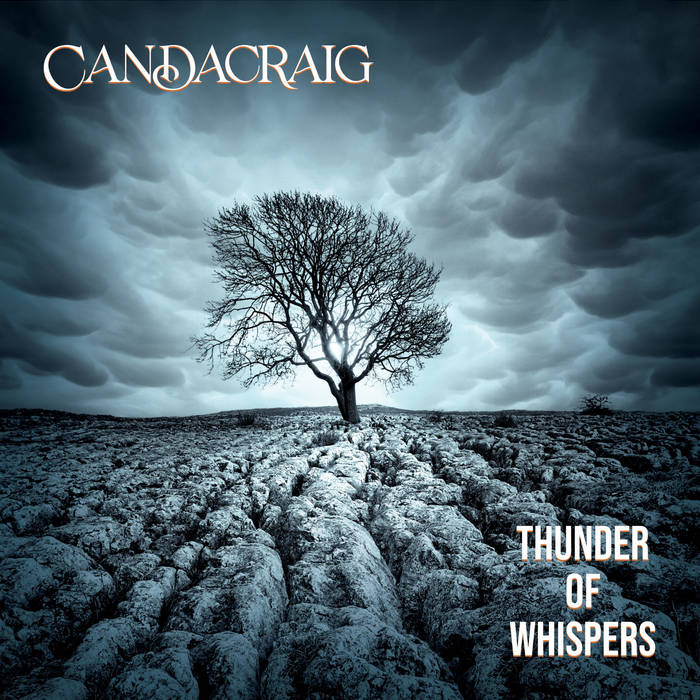
Doors are at seven o’clock with Candacraig going onstage at eight o’clock. Hope to see you there!

-
Photos from the recent 90s Jam show at EGO nightclub in Perth, by Cristian Shearer-Felipe.

-
The long-awaited follow-up to my original post from January 2020 on modifying a guitar amp channel footswitch to change the motor speed in a Sharma 2000 rotary cab is finally here! I will give a small précis of the 2020 post here, for context.
The Sharma 2000 has a nine-pin Amphenol connector on the rear panel, and three of these pins are concerned with the speed of the rotary motor; grounding Pin 6 (ie. by connecting it to Pin 1, the ground pin) spins the motor fast, whilst grounding Pin 7 spins the motor slower (and with neither pin connected to the ground of Pin 1, the motor does not spin at all). I rewired a generic footswitch to use a TRS ¼” jack connector to change which pin was connected to the ground. Because I was doing these modifications in a bit of a hurry – just a couple of days before a gig on which I planned to use the Sharma rotary speaker – I left it at that. But I always planned to return to the project at a later point and finish the job.
Despite all the unexpected free time afforded to me by lockdowns in 2020 and 2021, I only managed to return to complete this project within the last few weeks. I decided to add bi-colour LEDs as indicators, so I could see whether the speed of the motor was set to ‘Chorale’ (slow) or ‘Tremolo’ (fast). I wanted to use green for Chorale and red for Tremolo – mimicking the LED indicators built into the Nord’s rotary speaker emulator, which also use these colours in that configuration. I also wanted to add a ‘brake’ switch to the circuit, which would stop the motor spinning altogether when activated – along with another LED, lighting up red when the brake is engaged and the motor is stopped.
The Neewer footswitch came with small, single-colour (red) LEDs which didn’t really suit my purpose. I removed them and enlarged the holes they left to accommodate 5mm bi-colour red/green LEDs I bought on eBay. At the same time, I also drilled a hole for a 9v DC input jack so I could power the circuit for my new LEDs without needing batteries. I also removed the stock SPDT latching switches and swapped them for DPDT latching switches I had also found on eBay.
I had to make two separate circuits inside the pedal – one to power the LEDs and switch the colour when necessary, and the other to ground Pin 6 or Pin 7 of the Sharma 2000’s Amphenol connector (or neither, when the cab is ‘braked’). I used the Fritzing app to generate a schematic for the circuits I needed (and had a little help from a friend who is far more well-versed in electronics than I am to check I was along the right lines).
The brake switch works simply by breaking the circuit. It is inserted into the main circuit which controls the speed of the motor ahead of the switch which actually changes the speed: the sleeve of the TRS jack socket (Pin 1) goes to the one of the poles of the DPDT brake switch, with one of the throws going to one of the poles of the DPDT speed switch, and the other throw of the brake switch being a dead end which is not connected to anything. Each throw of the second DPDT switch (the speed switch) is then connected to the ring and tip of the TRS (Pin 7 and Pin 6).
The LEDs are simply powered from the 9v DC jack, and both are connected to the other ‘half’ the DPDT switches. On the speed switcher side, the throws are wired to each cathode leg of the LED so that the red cathode leg closes the circuit when Pin 6 is grounded and the motor is spinning fast, and so that the green cathode leg closes the circuit when the switch latches the other way and Pin 7 is gounded to spin the motor slower. On the brake side, the throw which doesn’t align with closing the speed switcher circuit is wired to the red cathode leg of the LED, while the green cathode leg is unused.
Check the video below to see the finished project in action!

